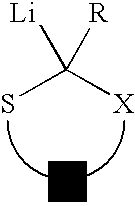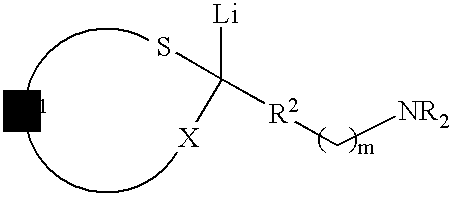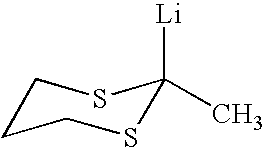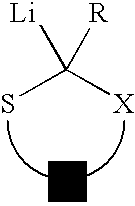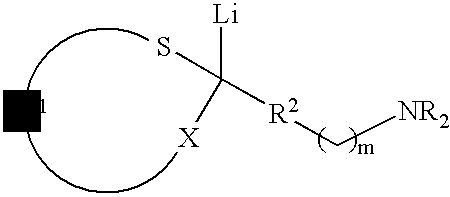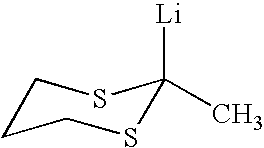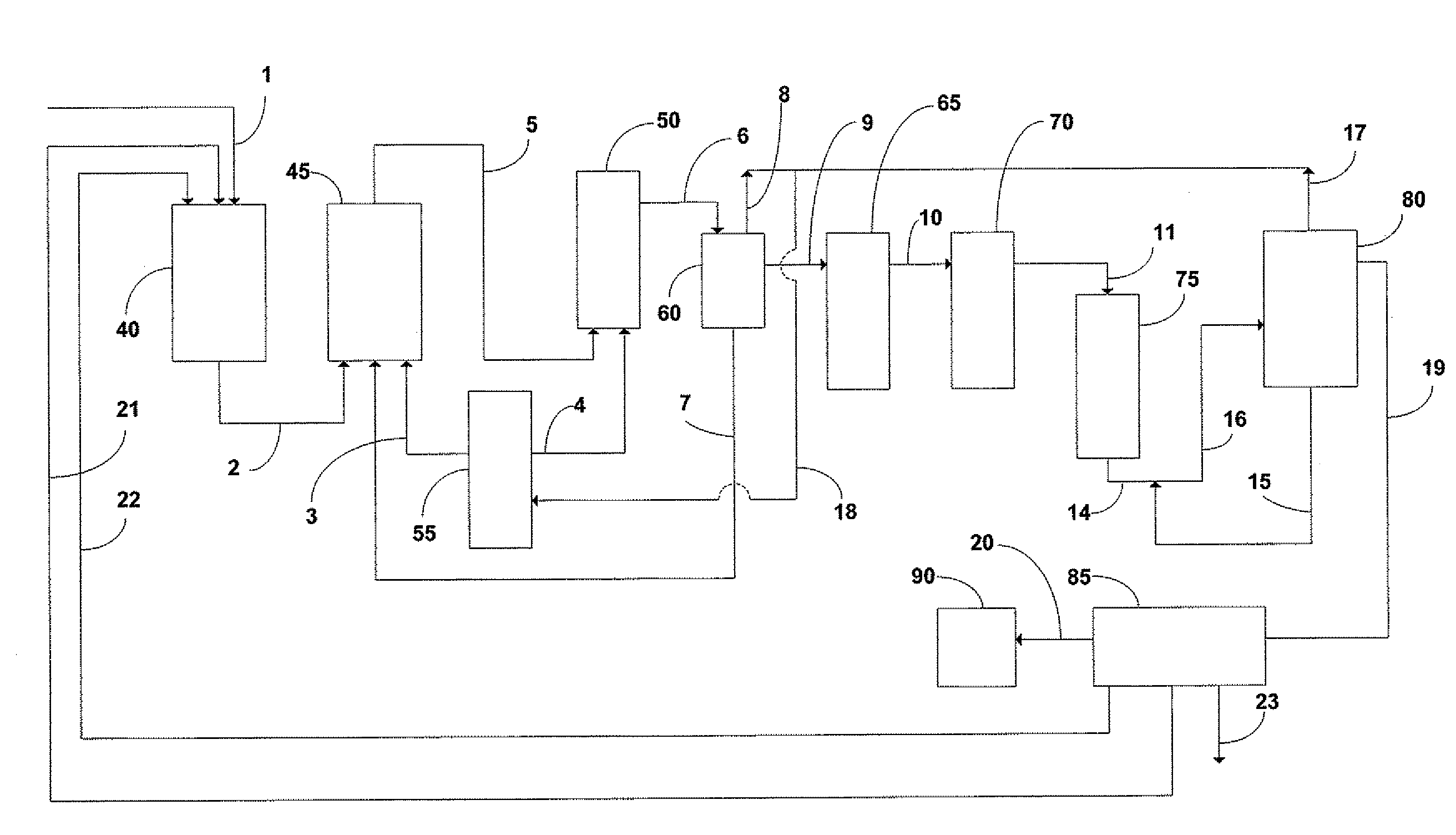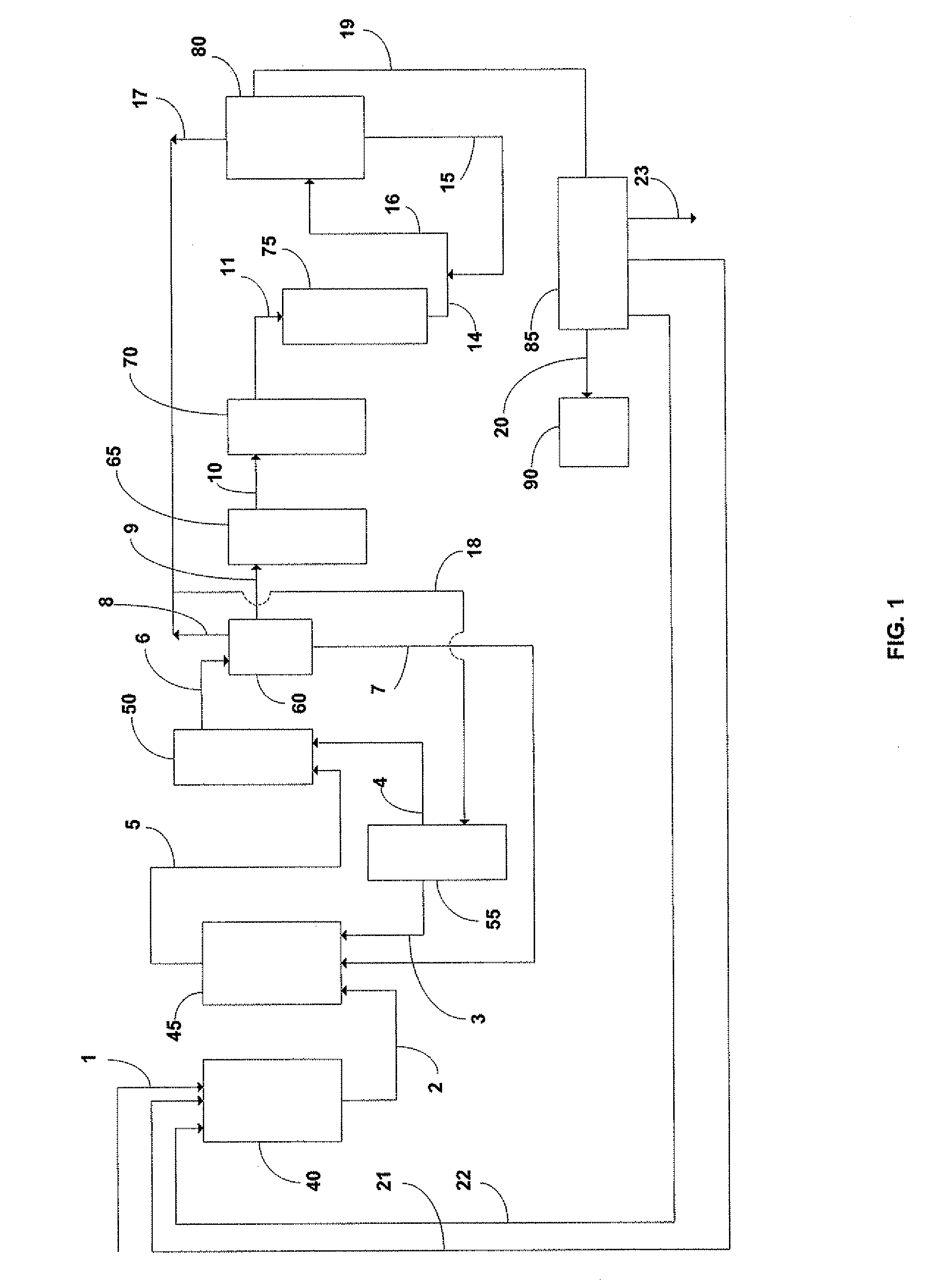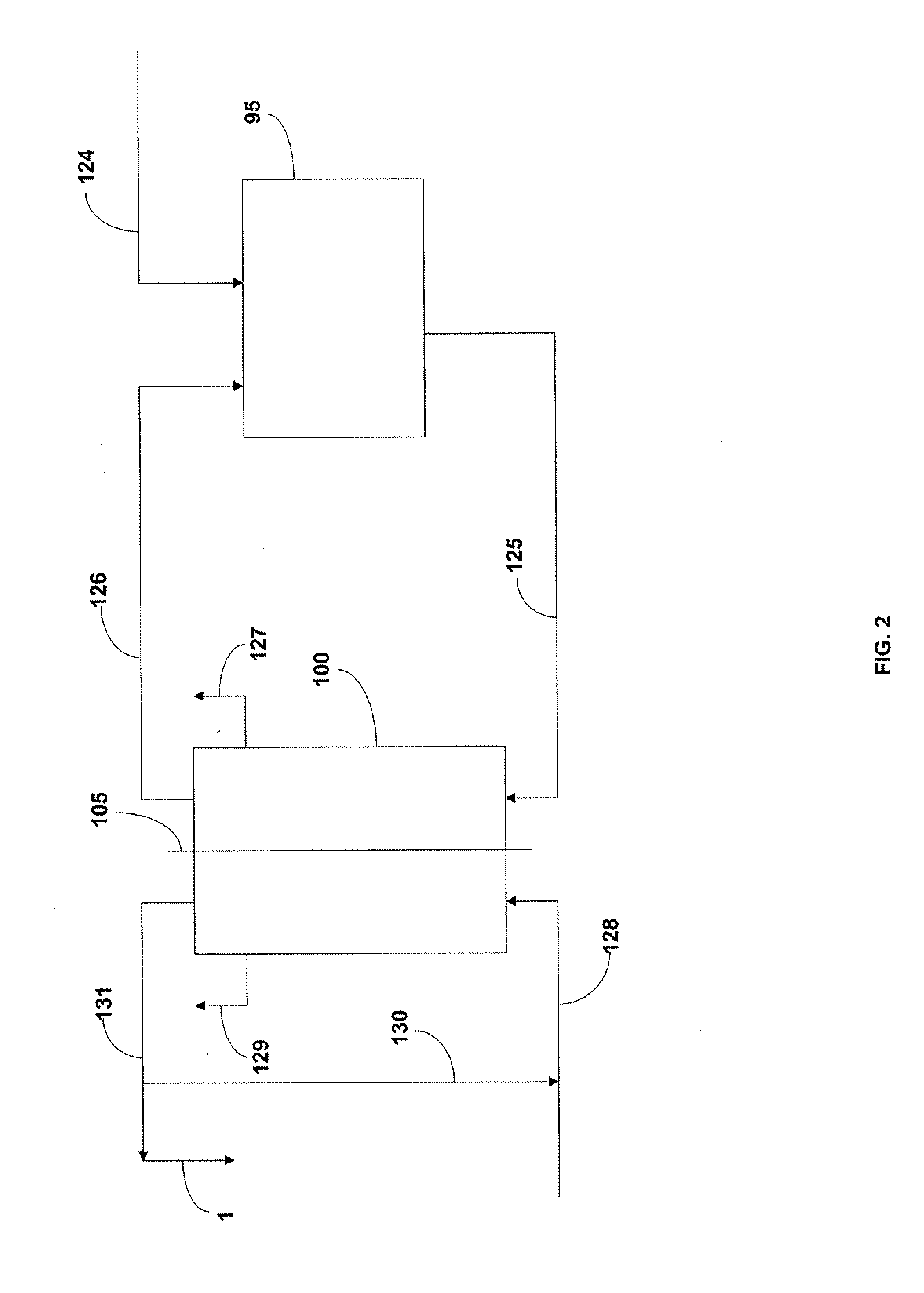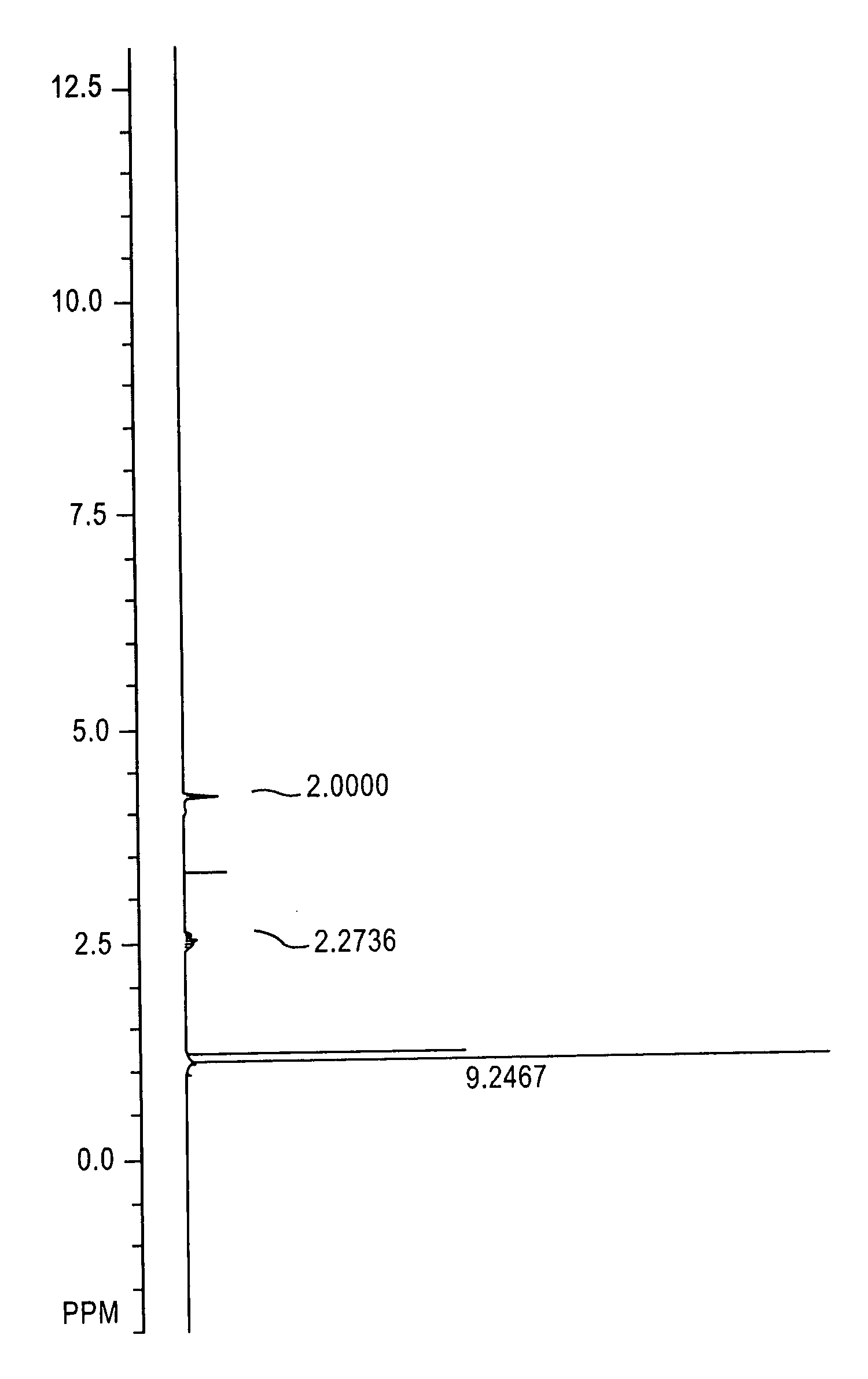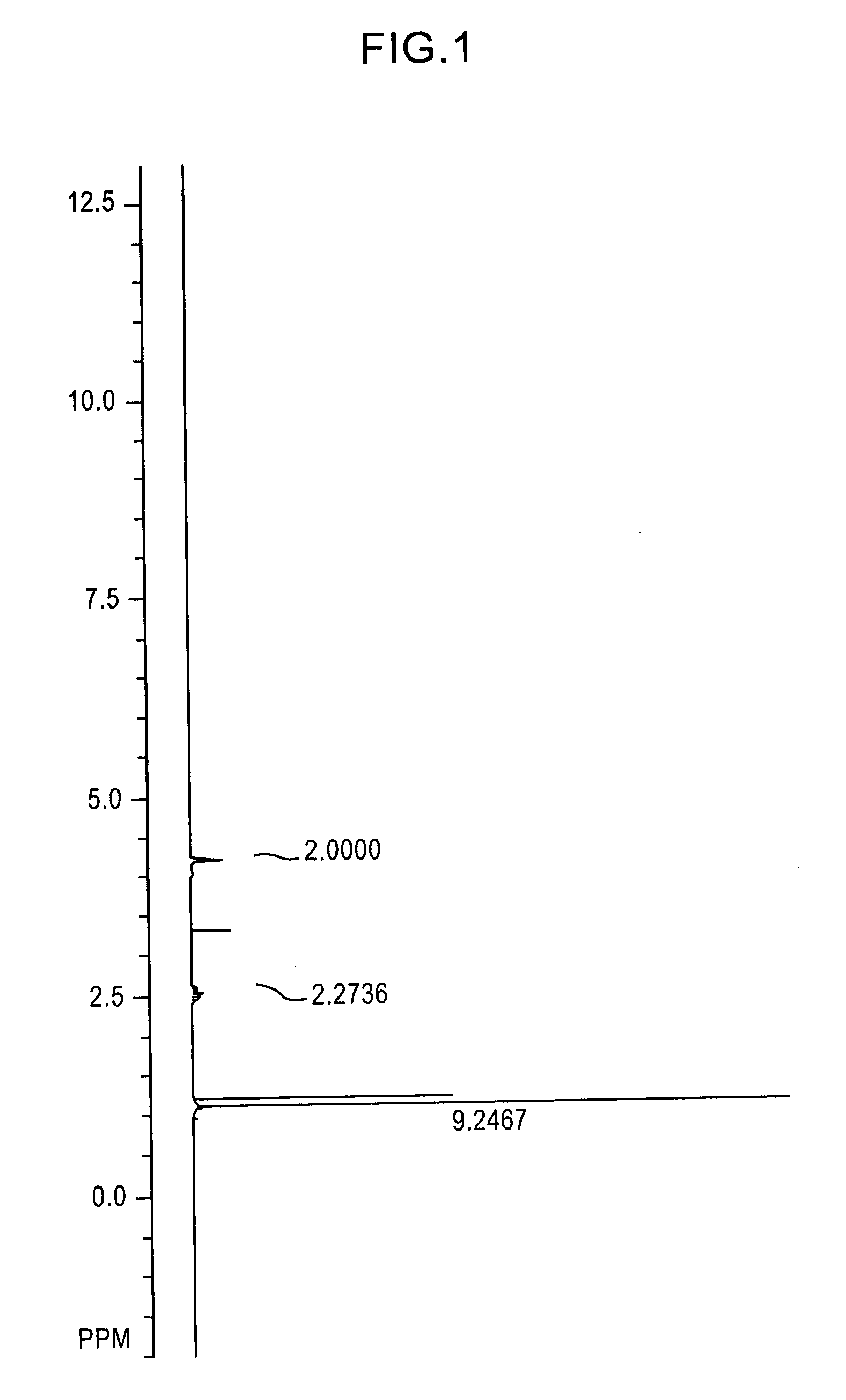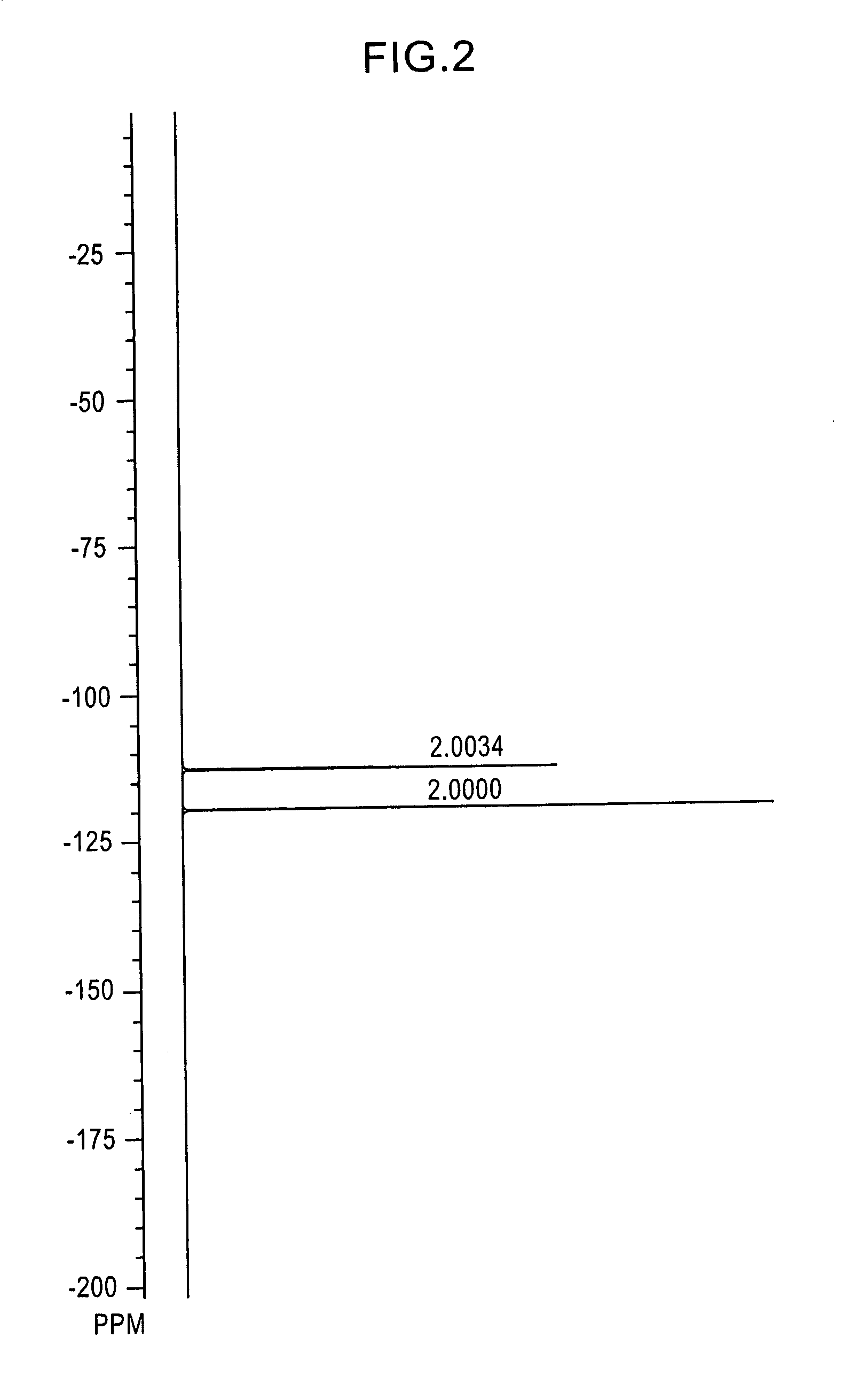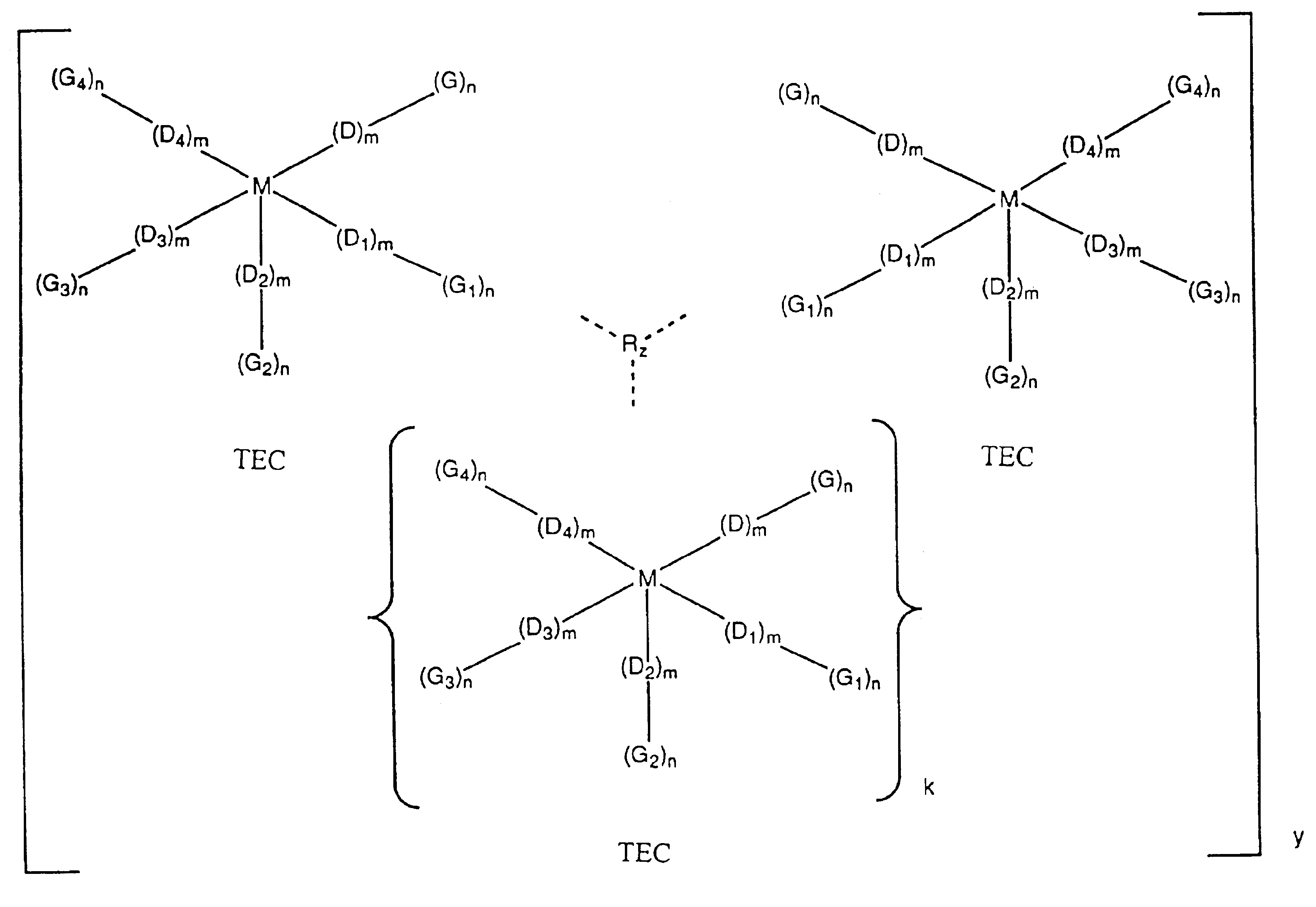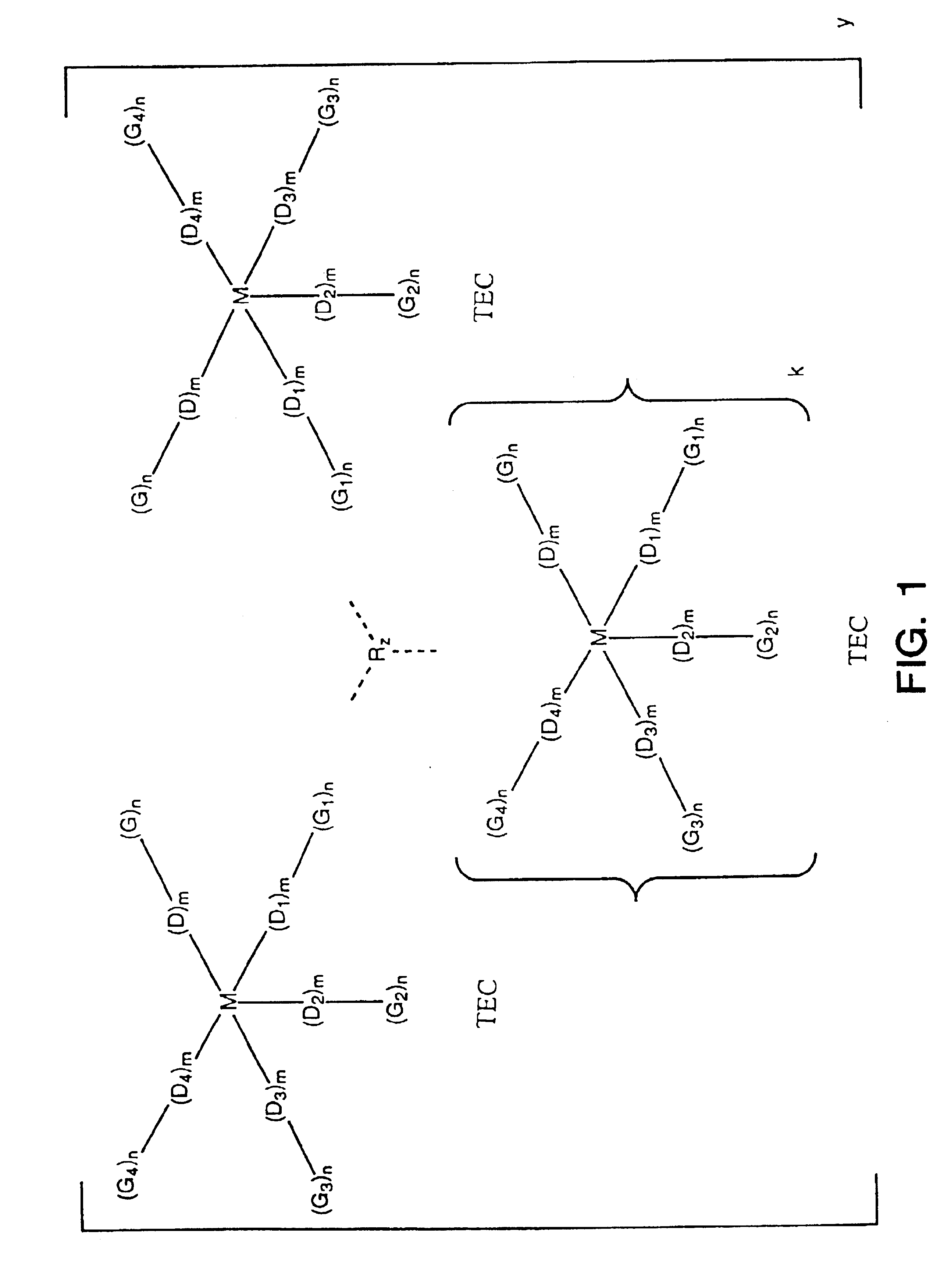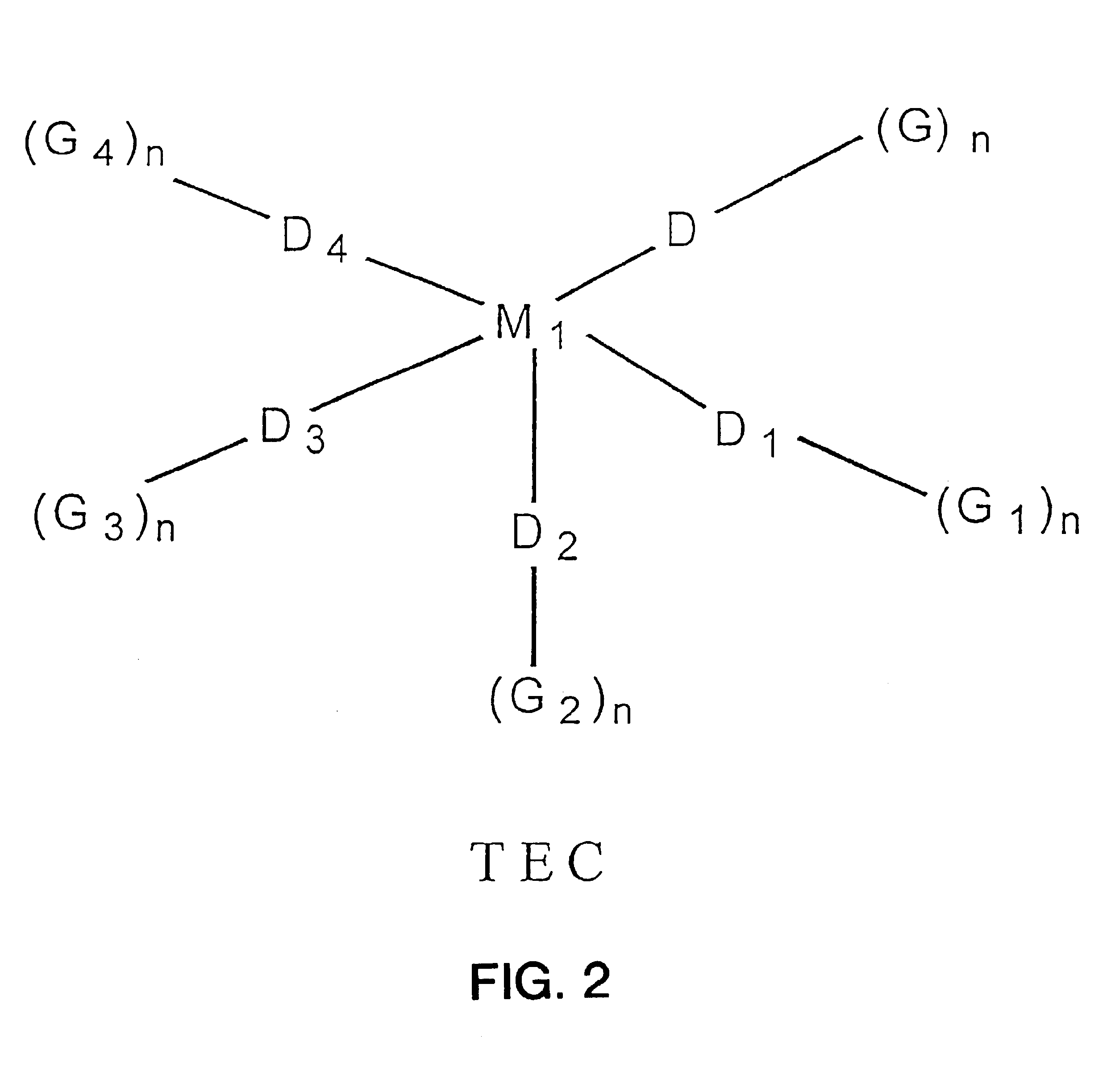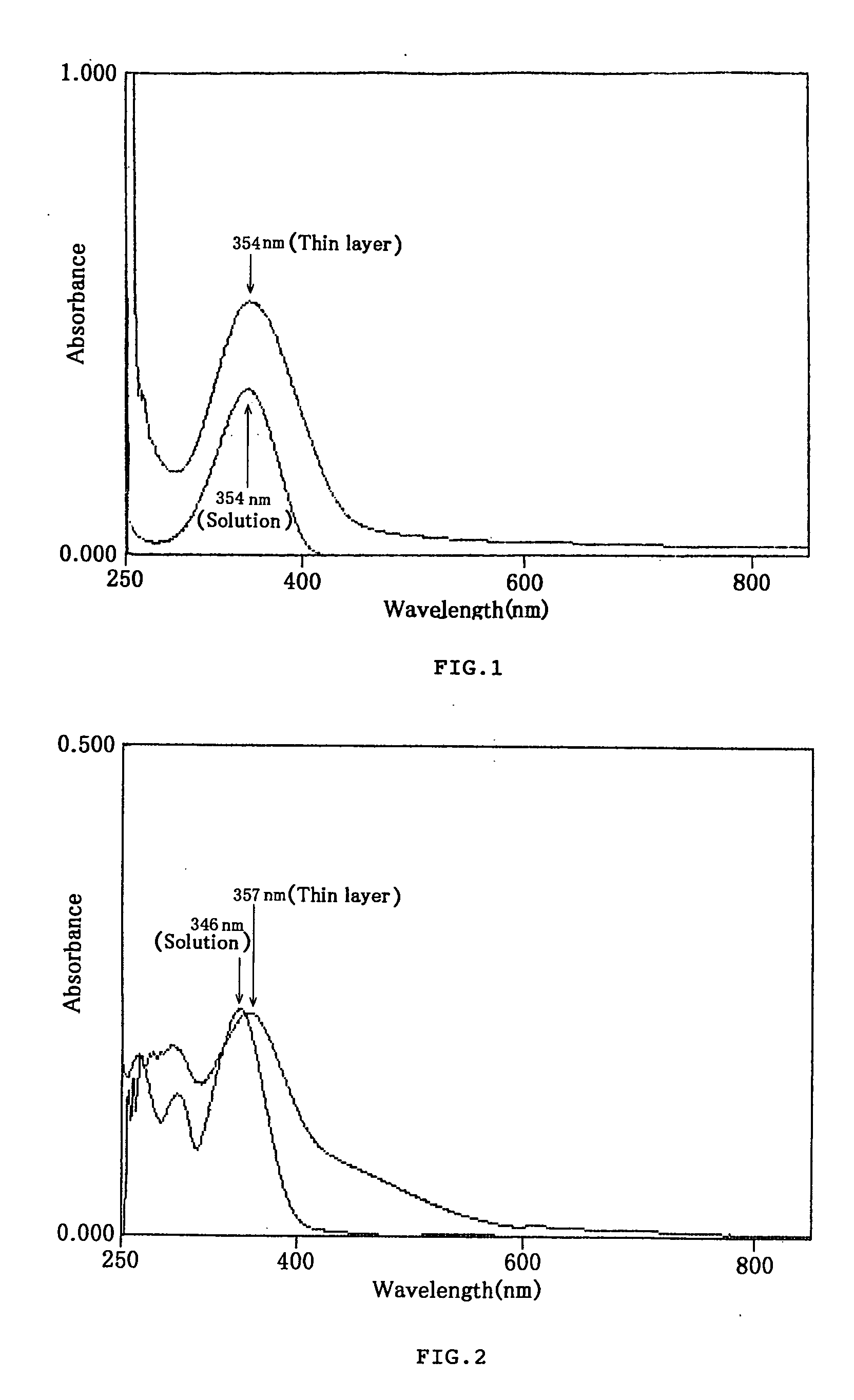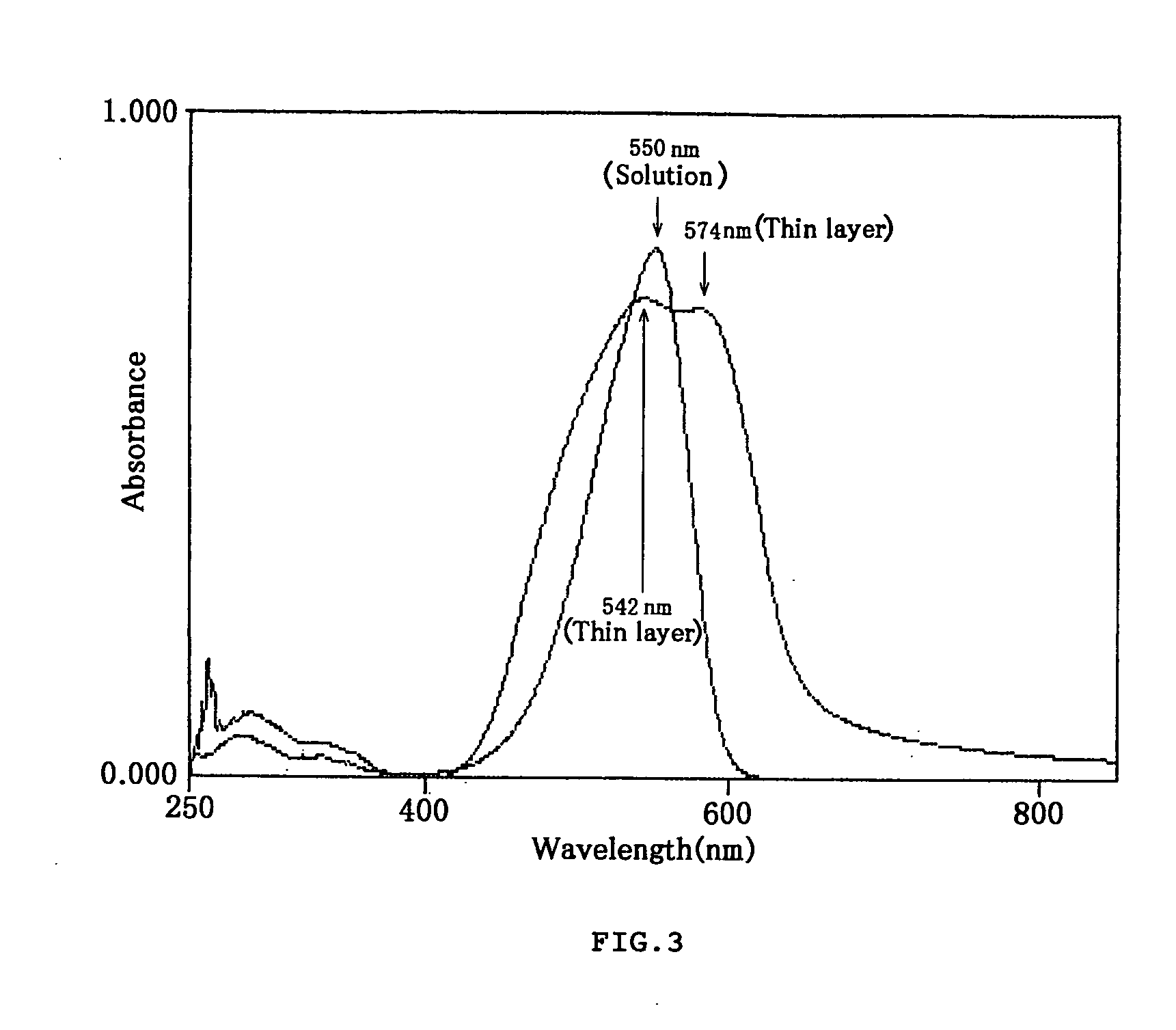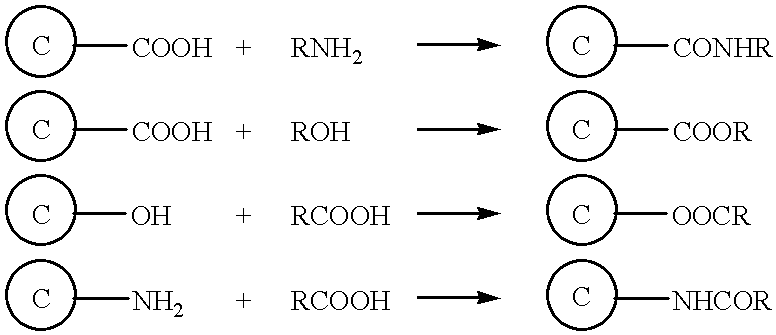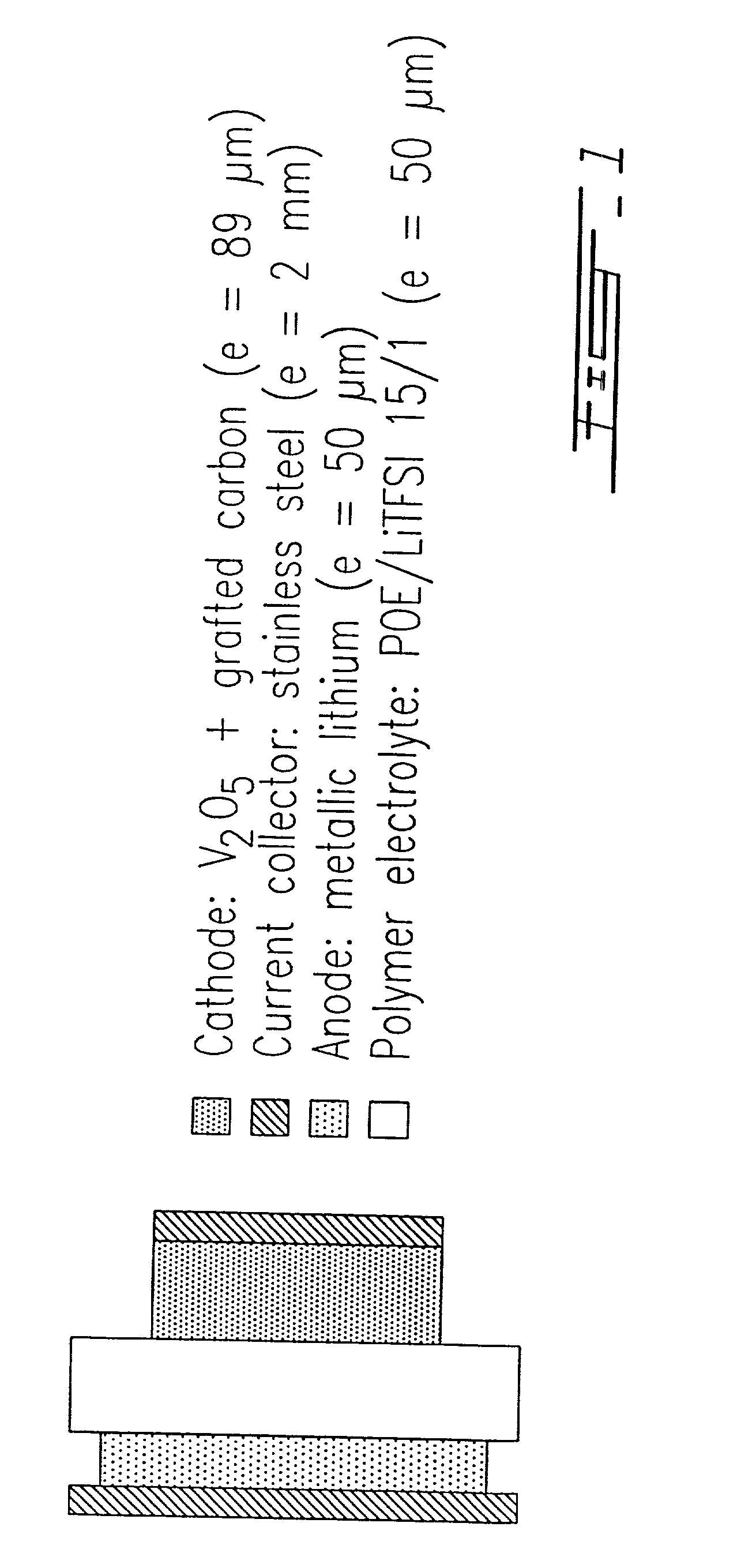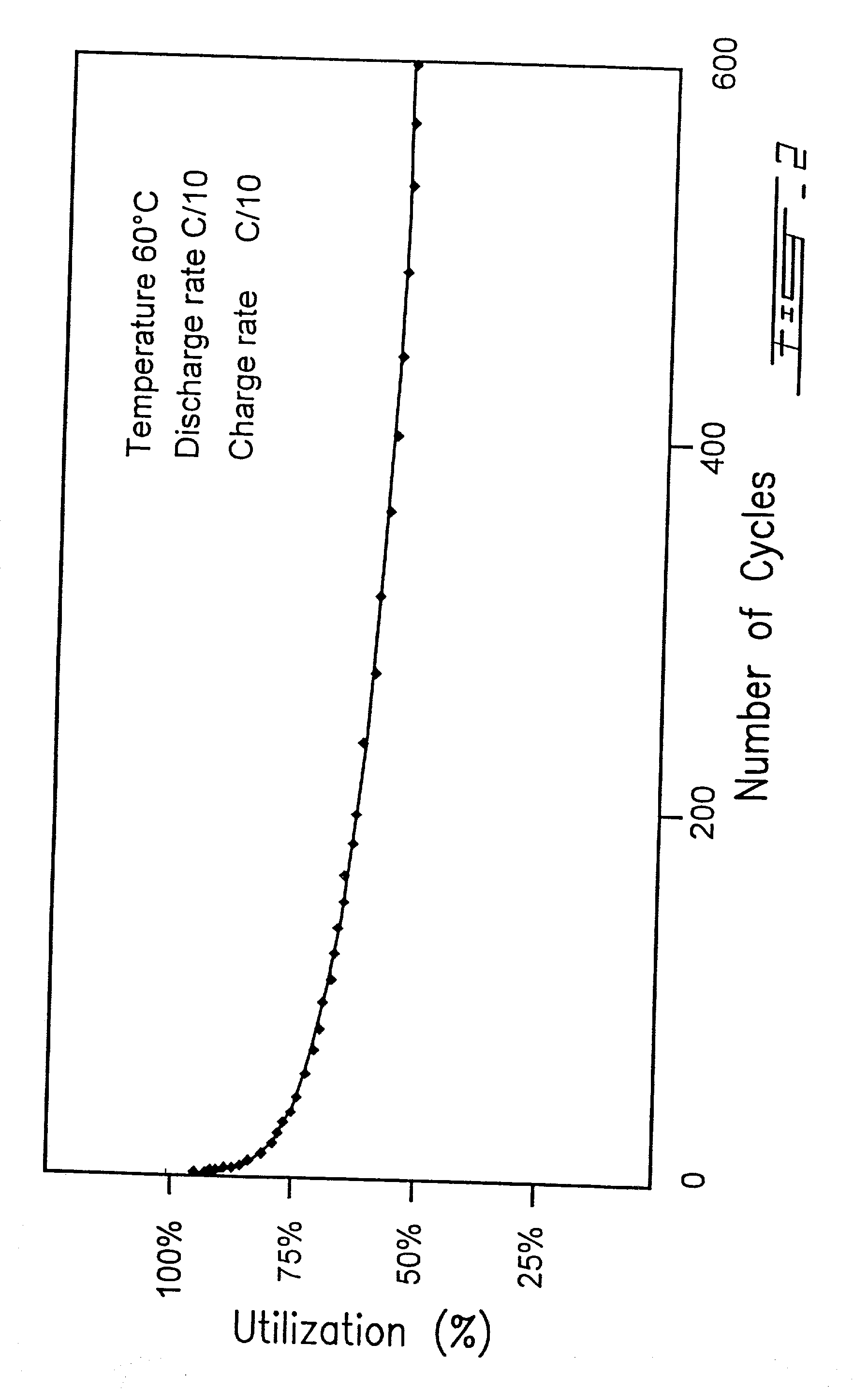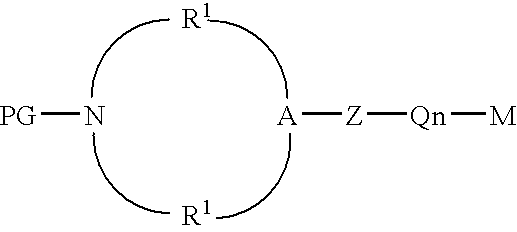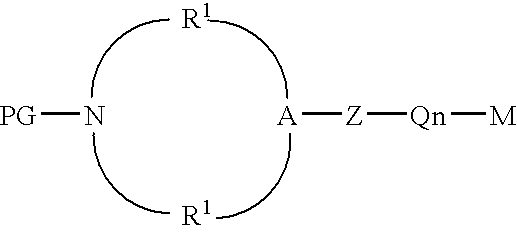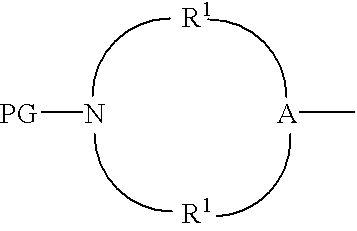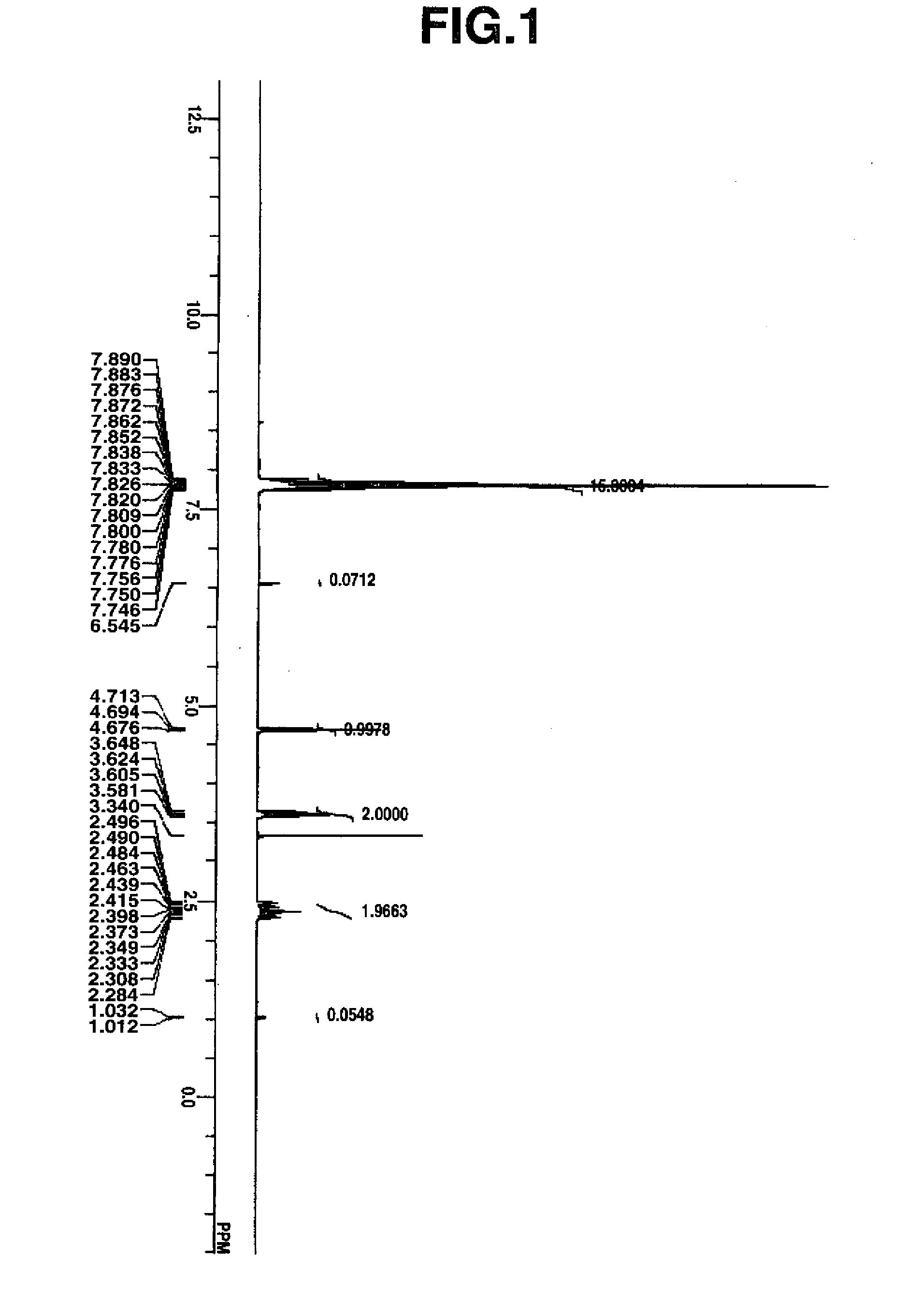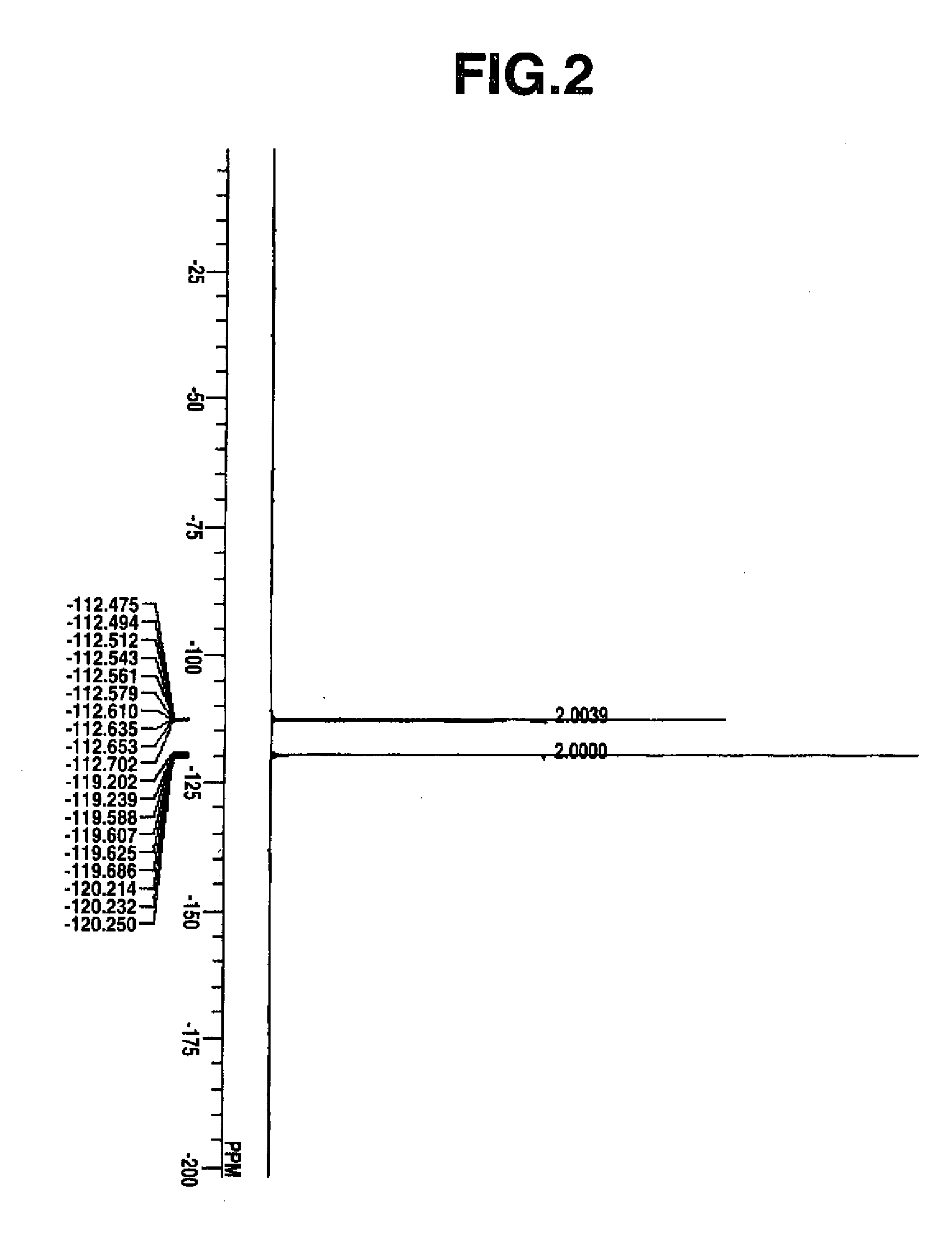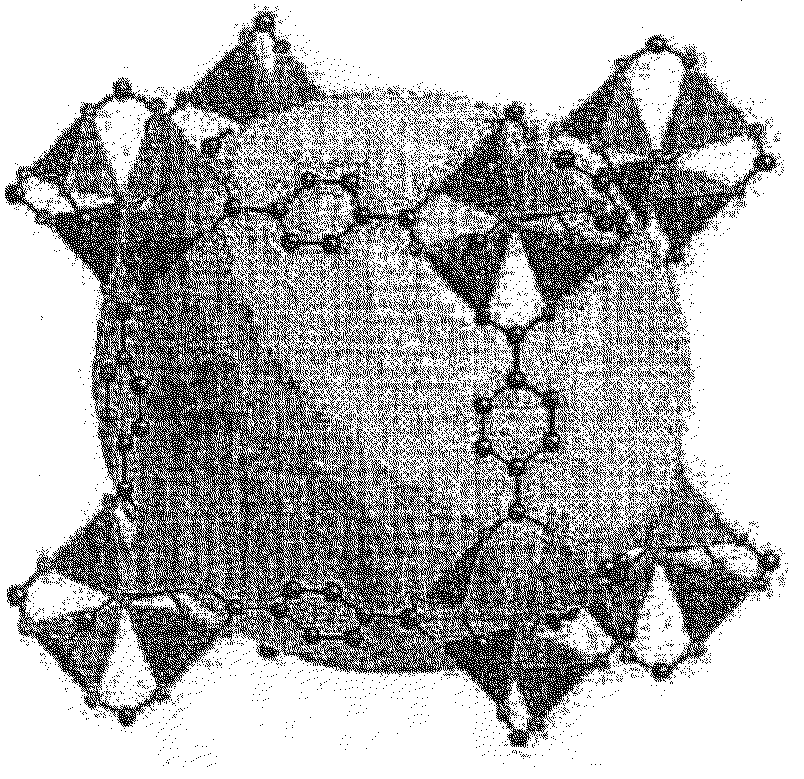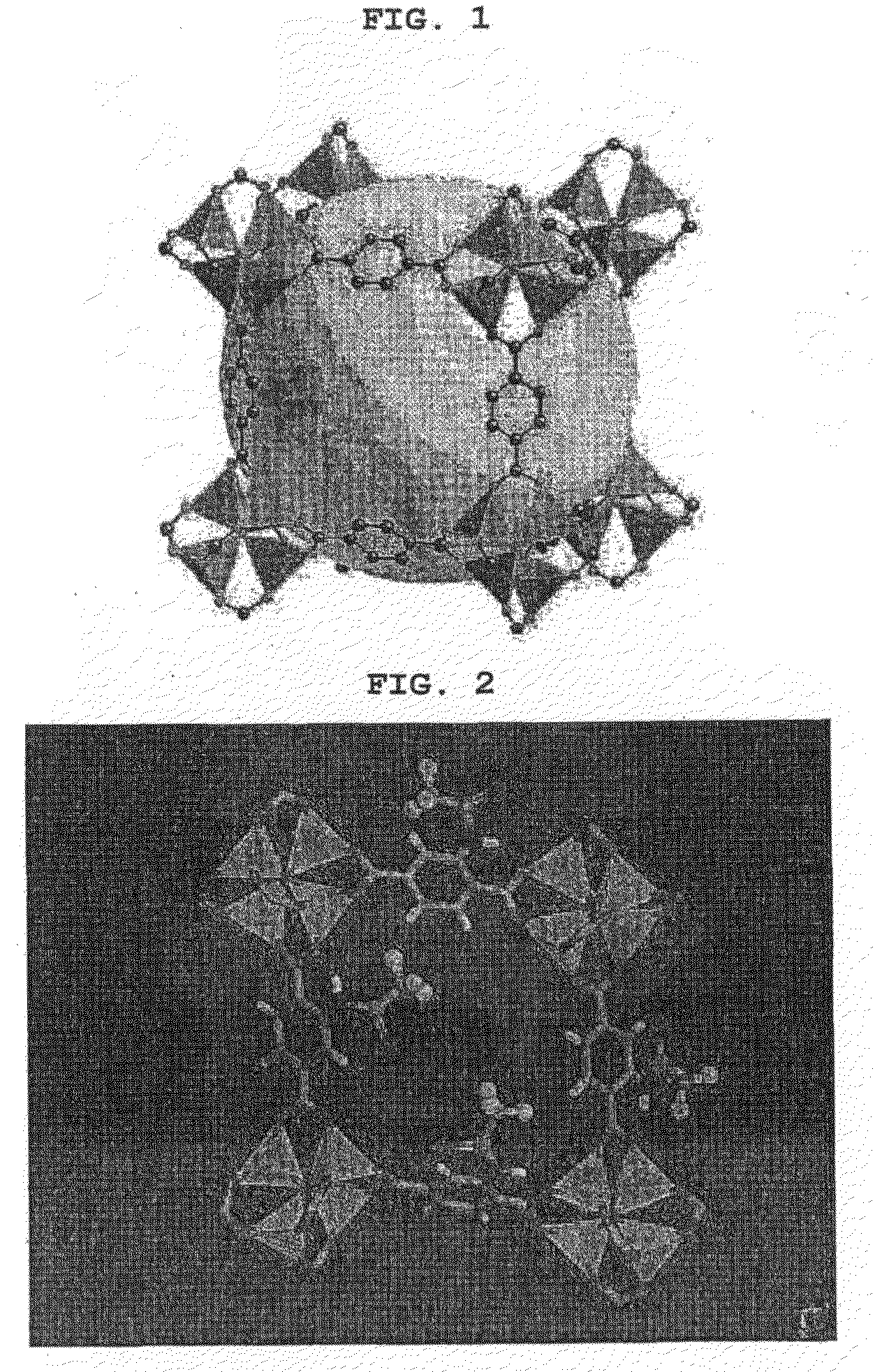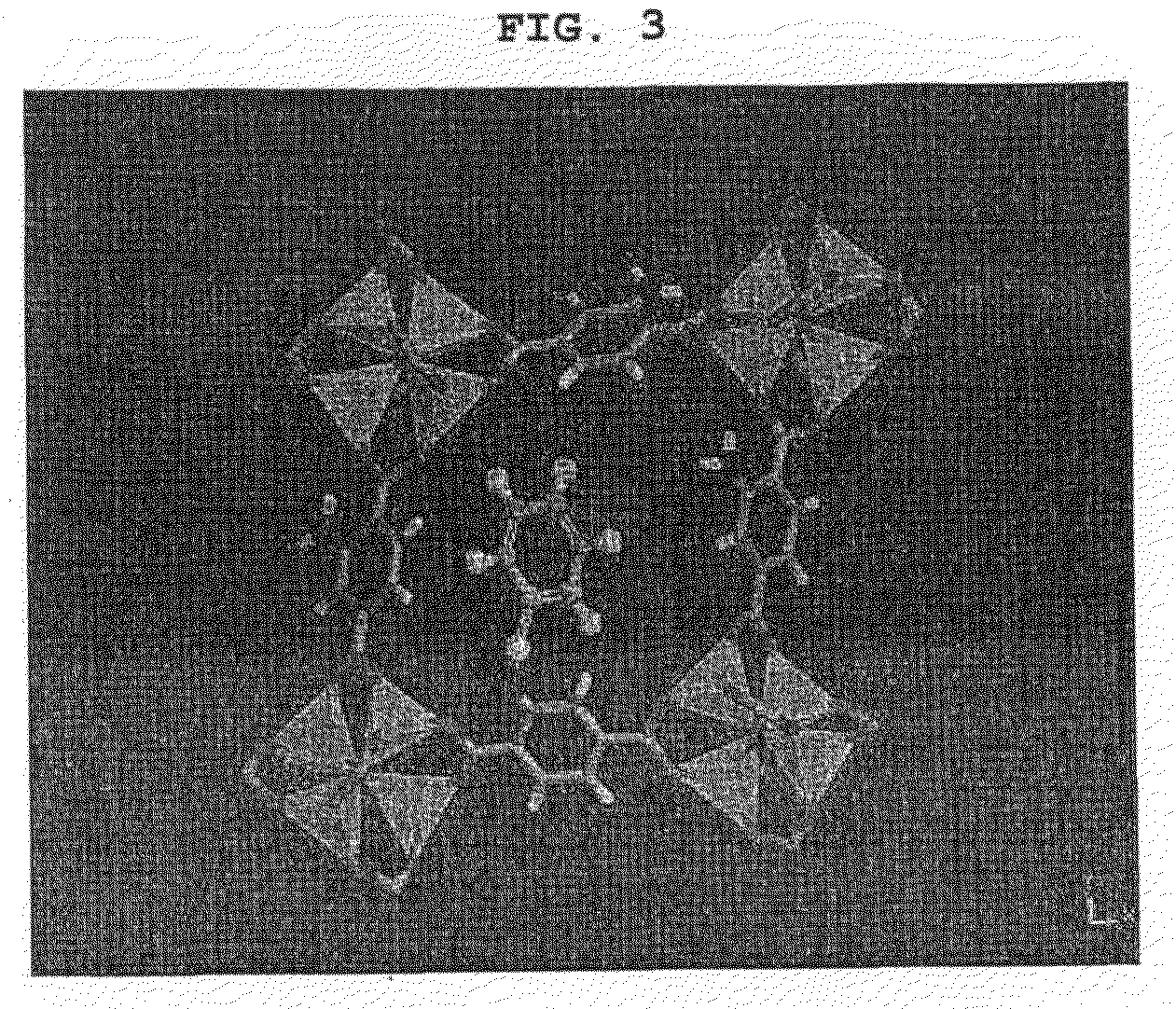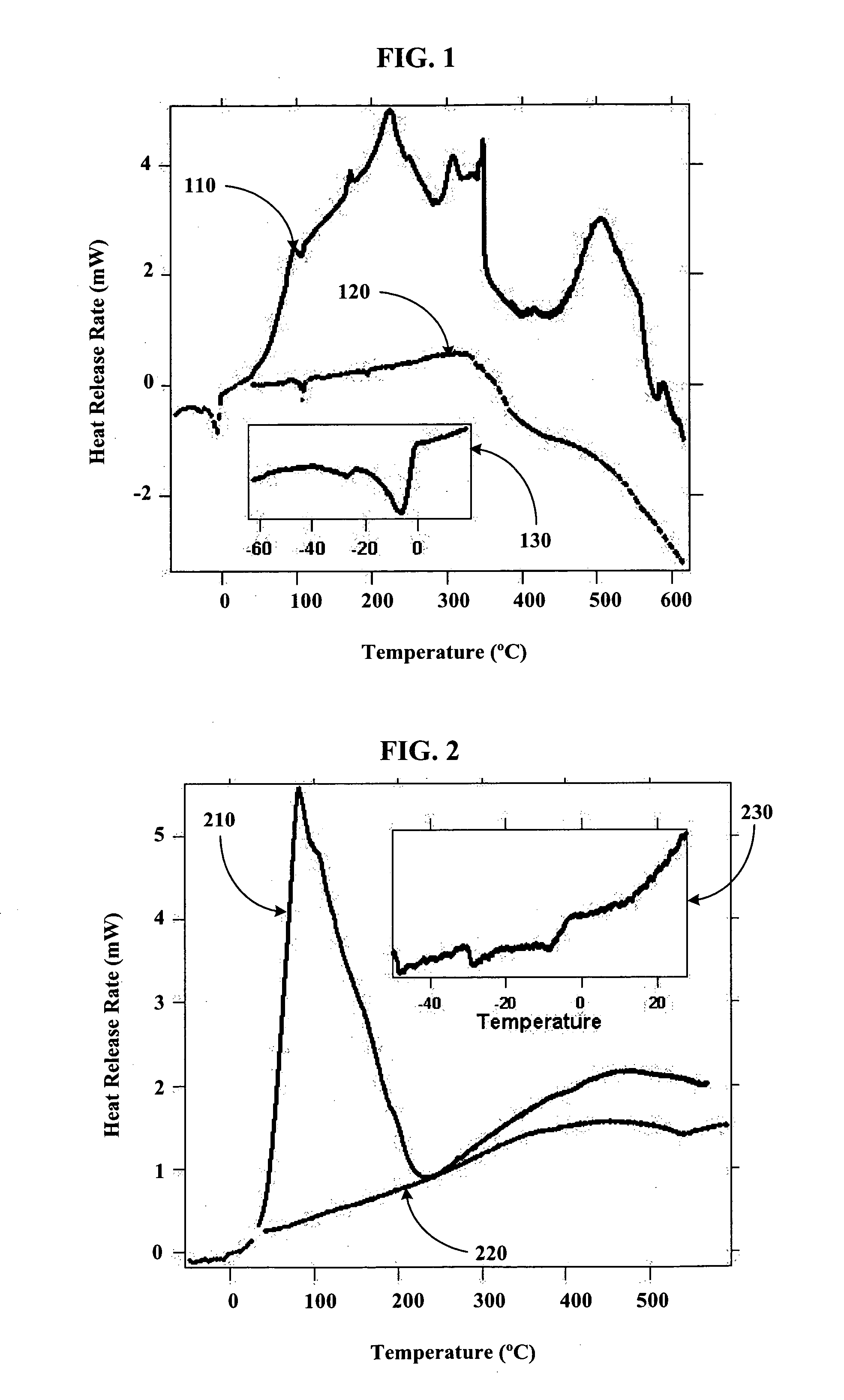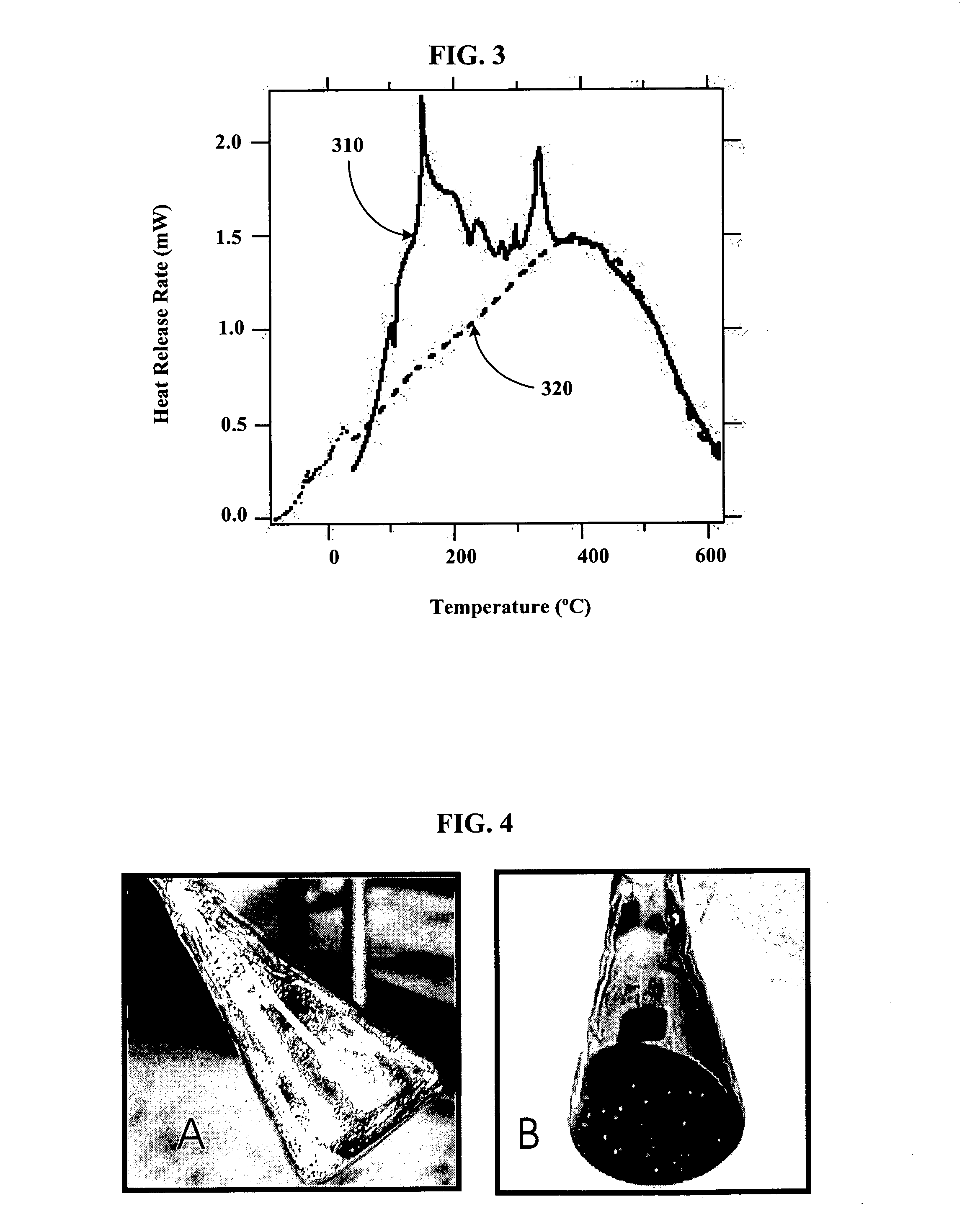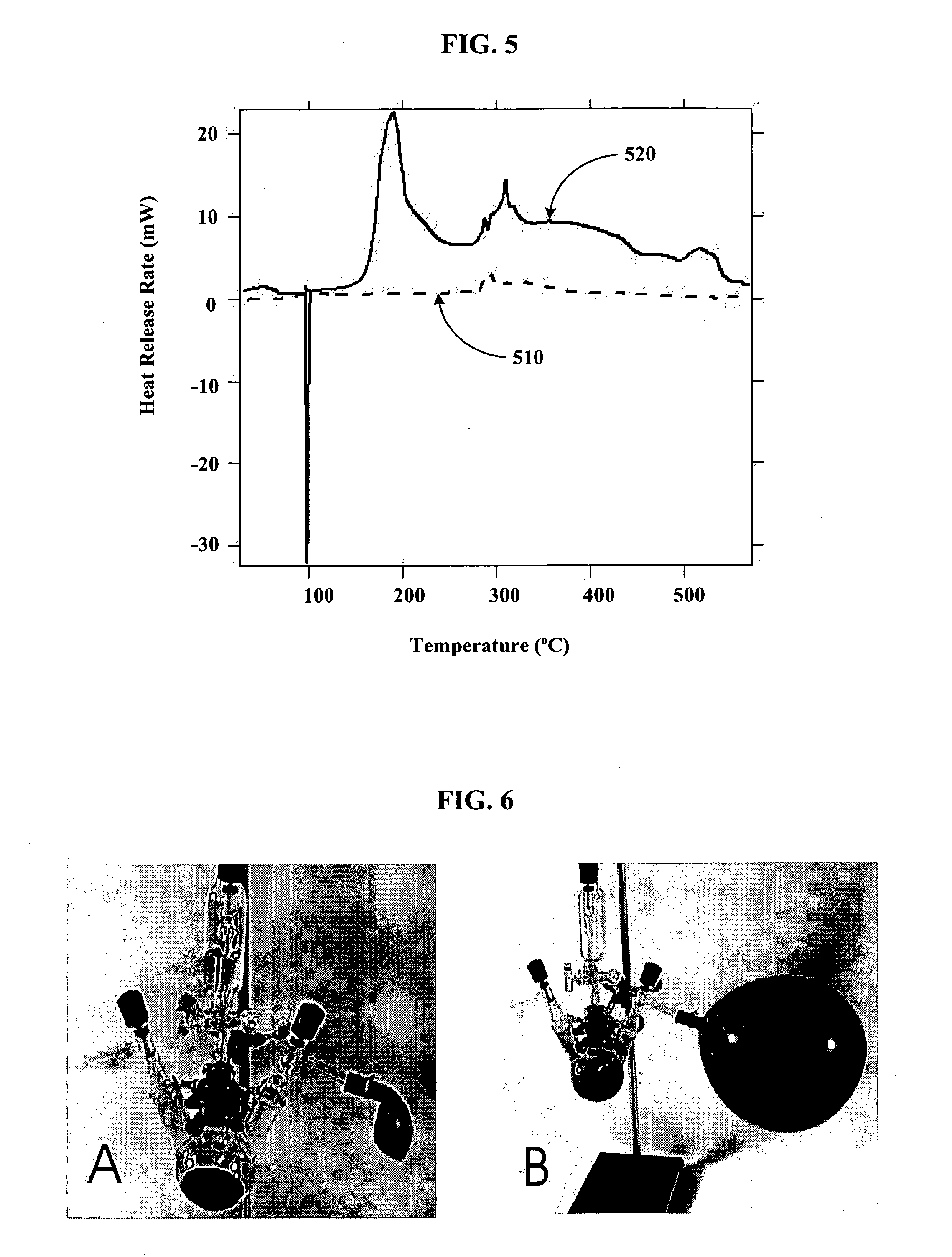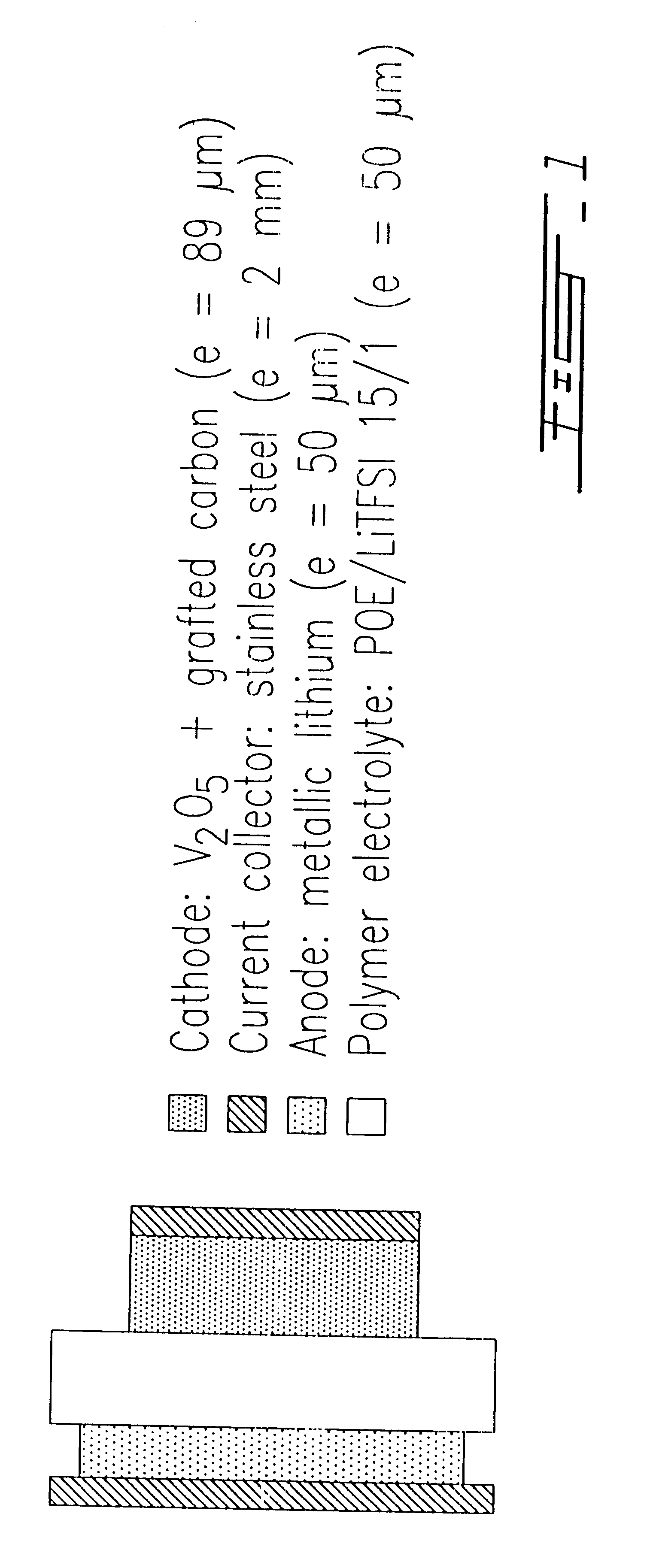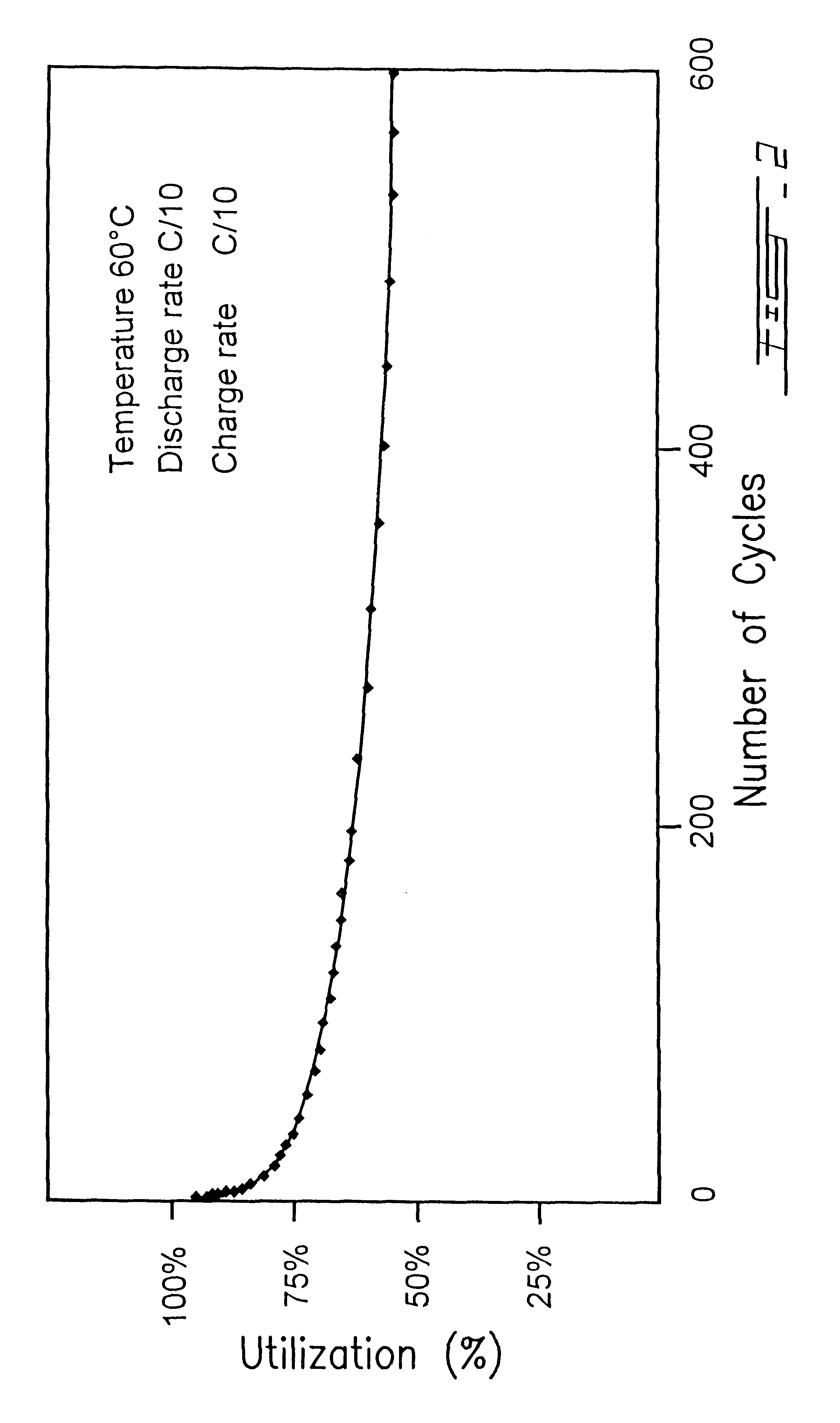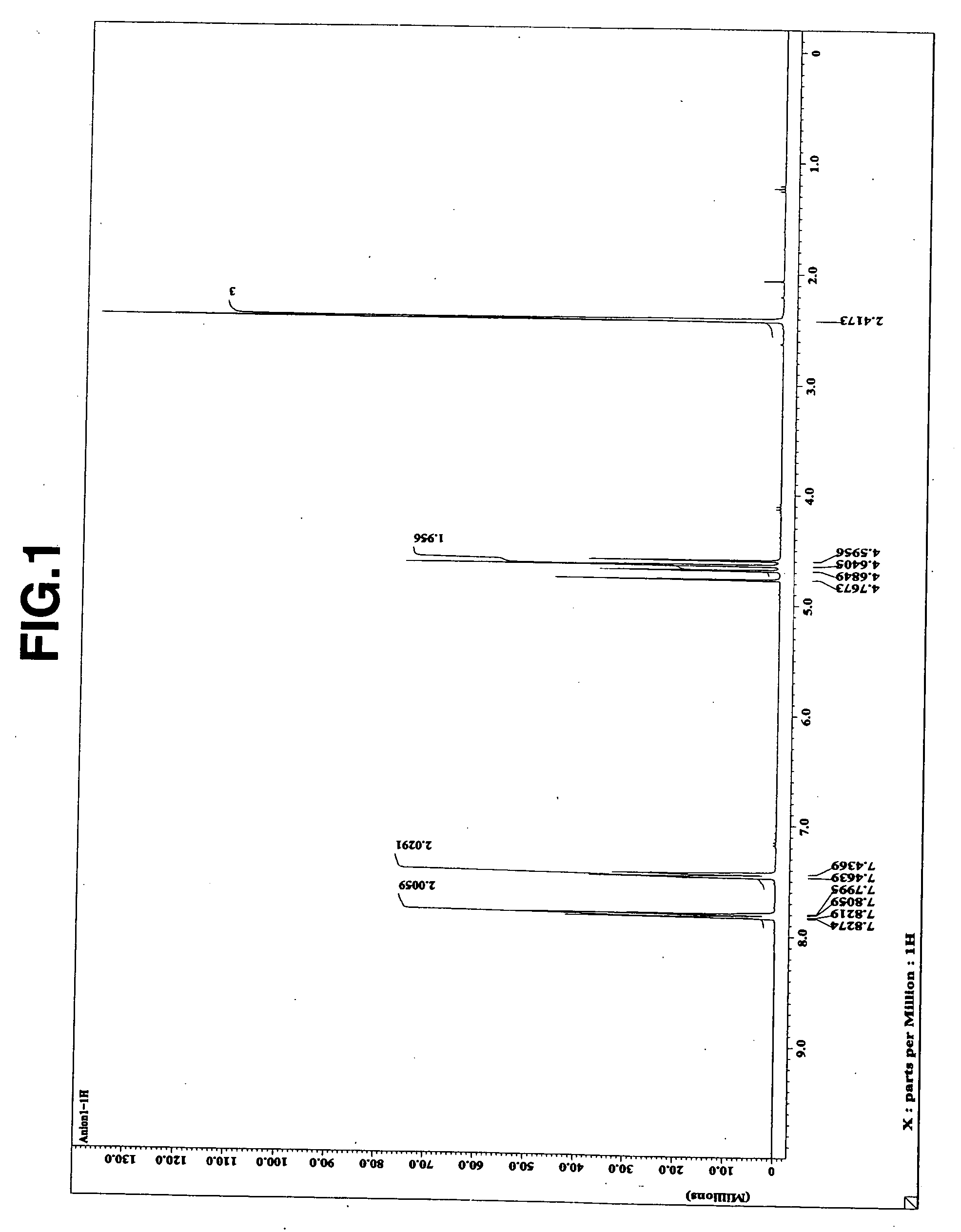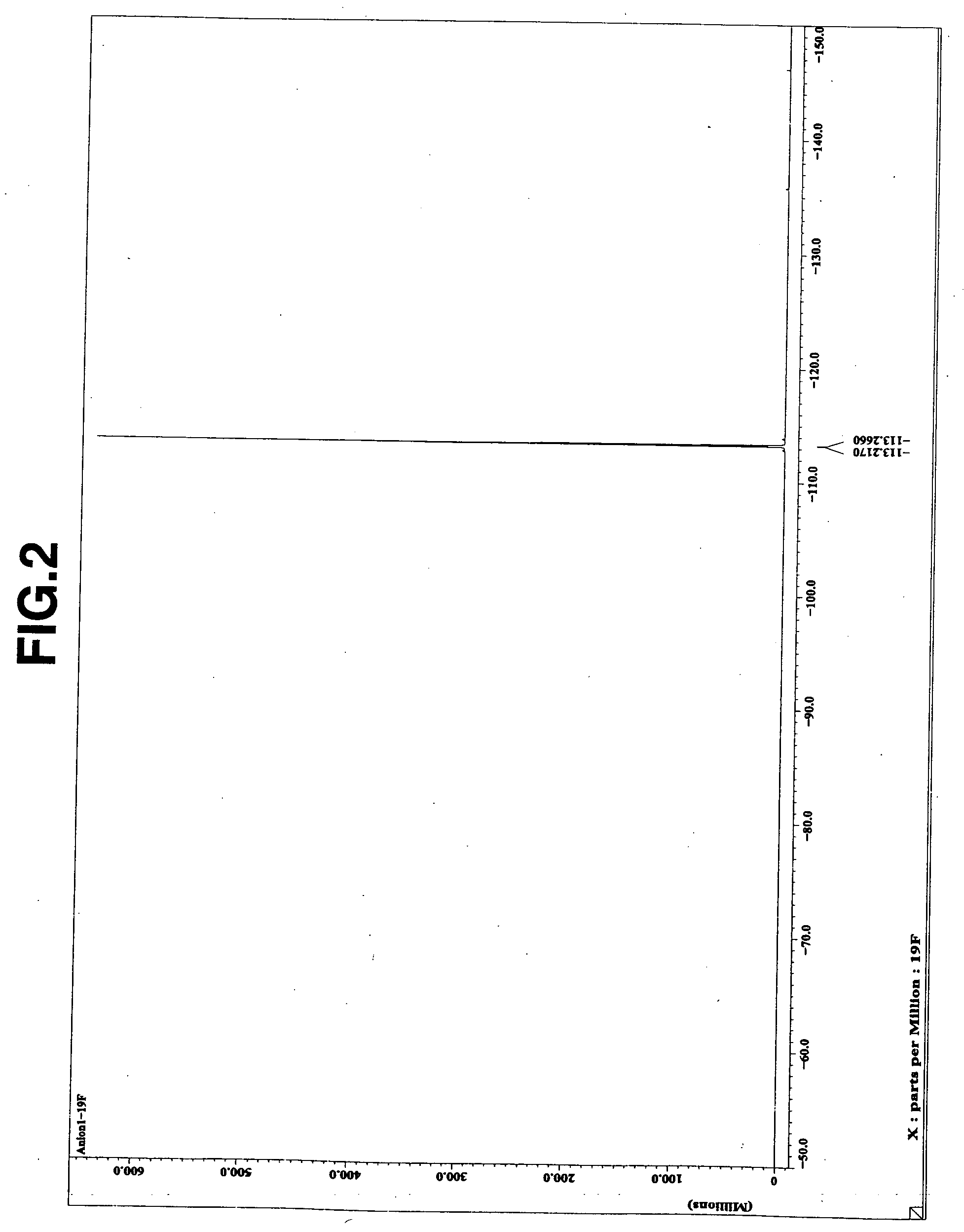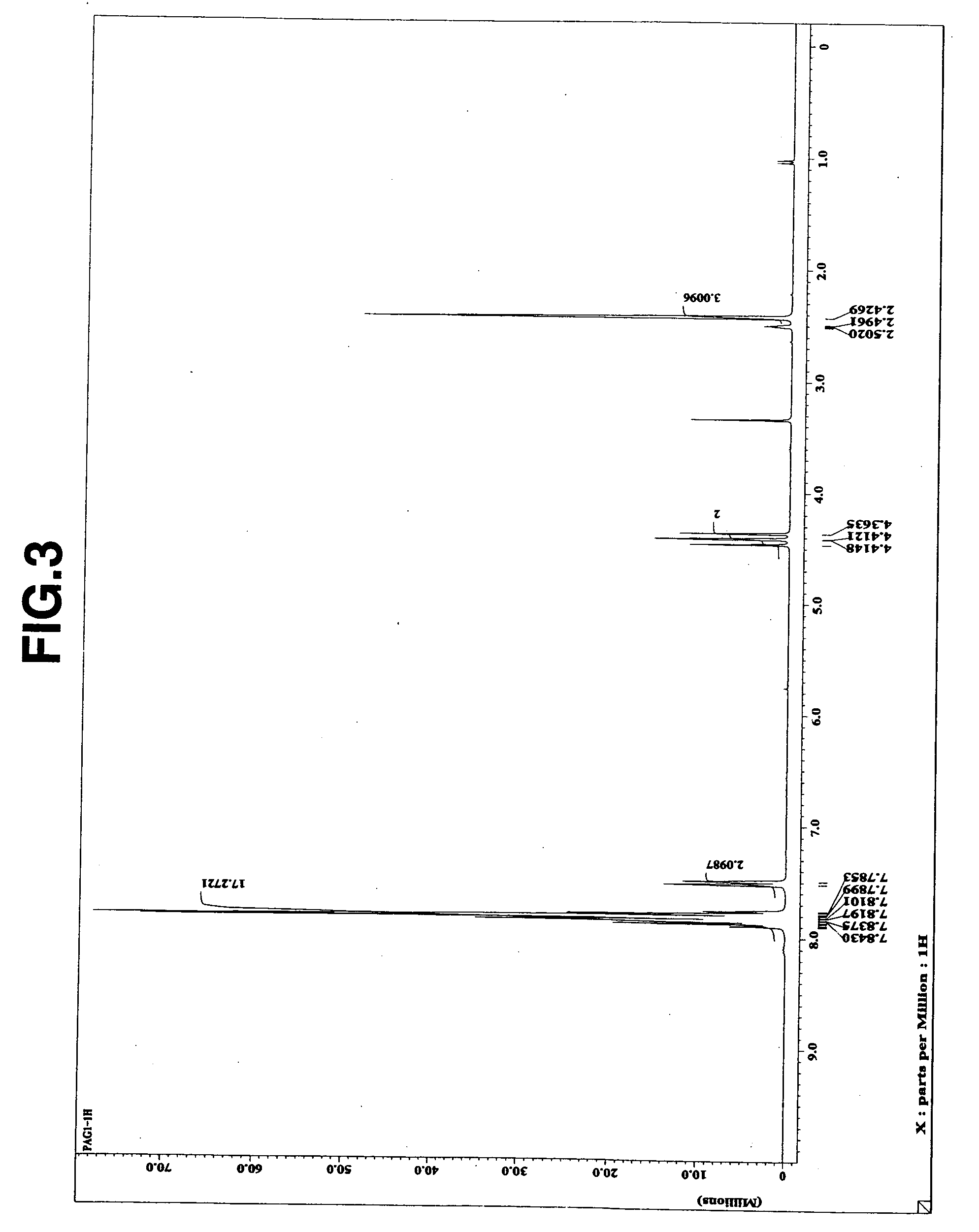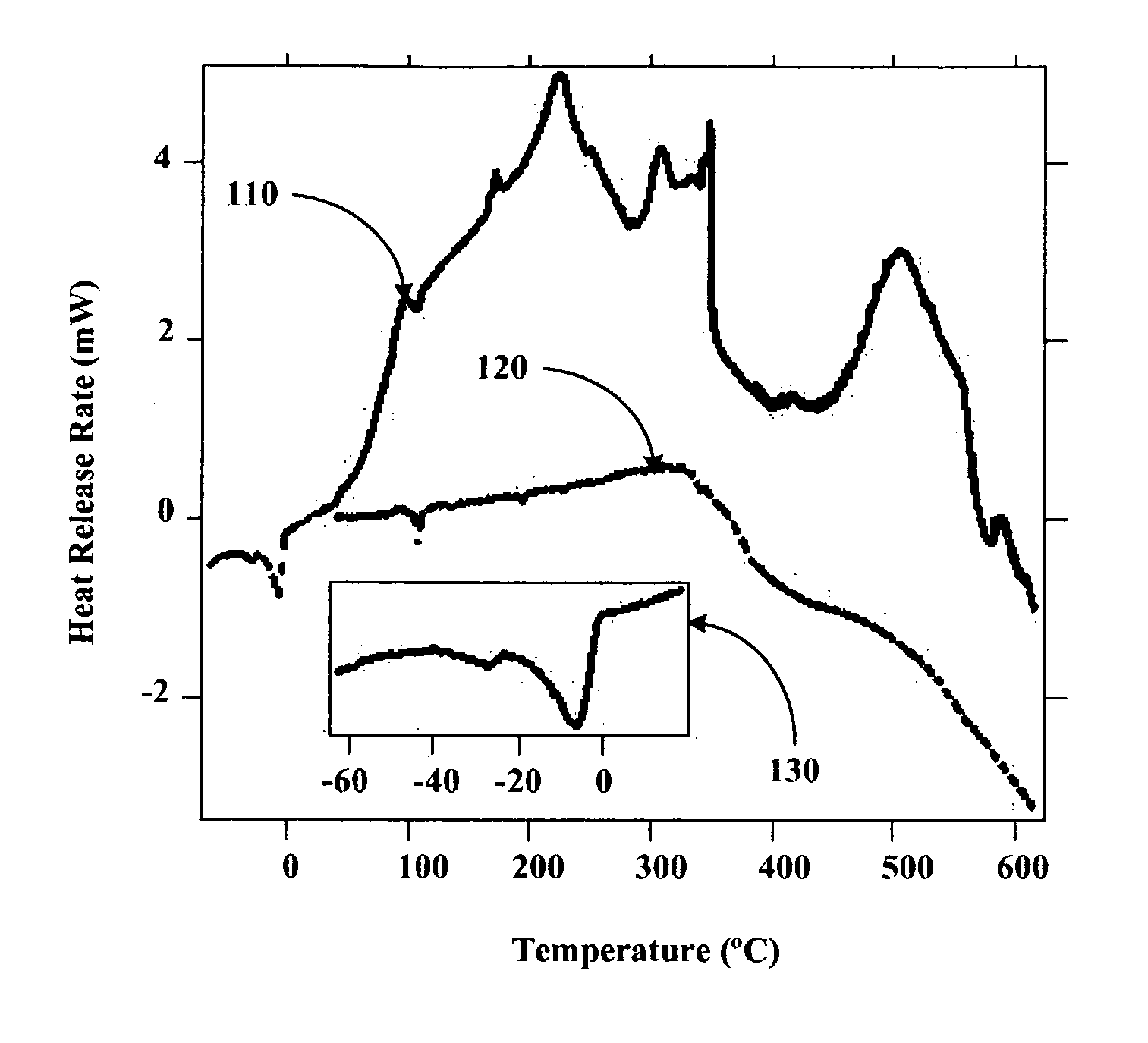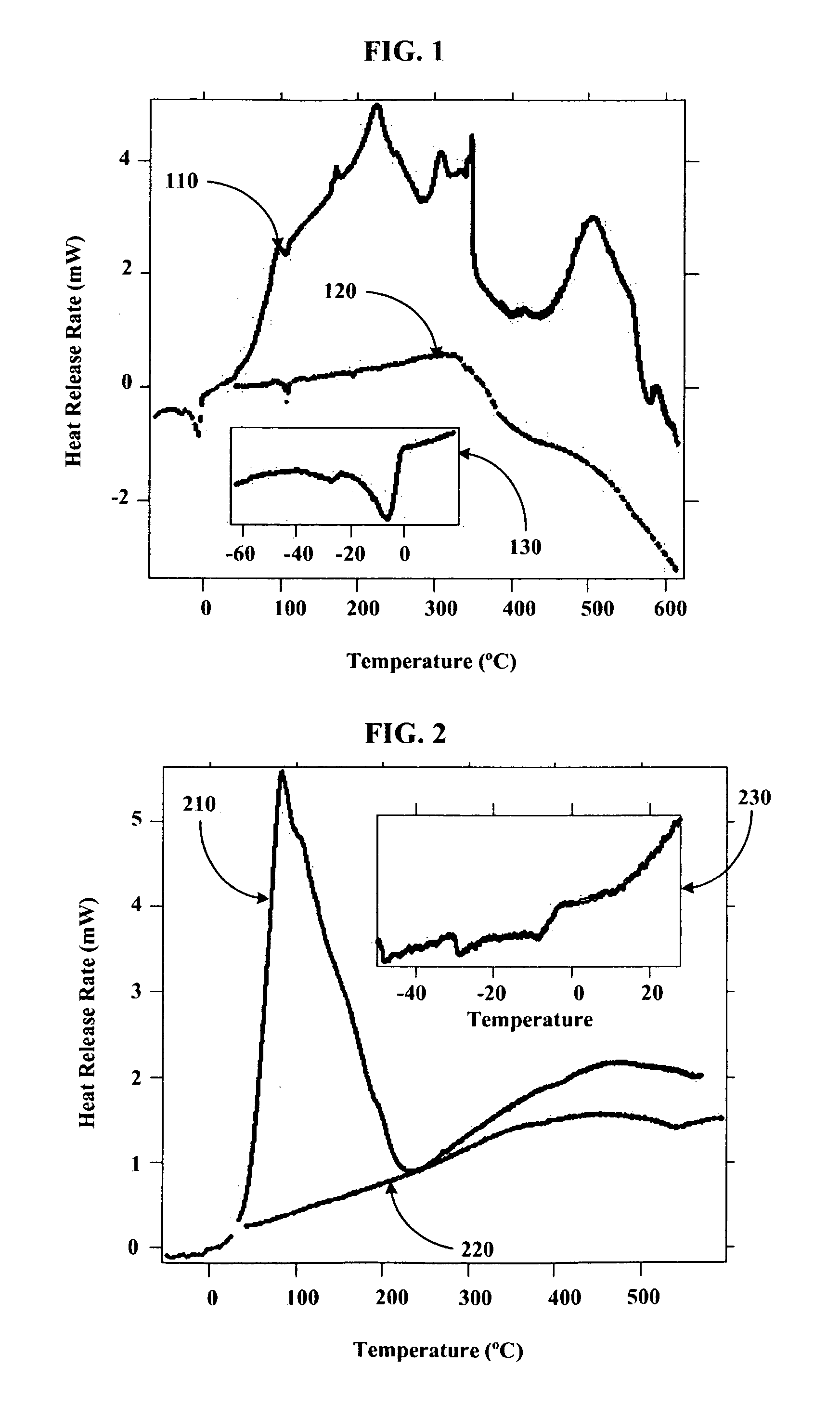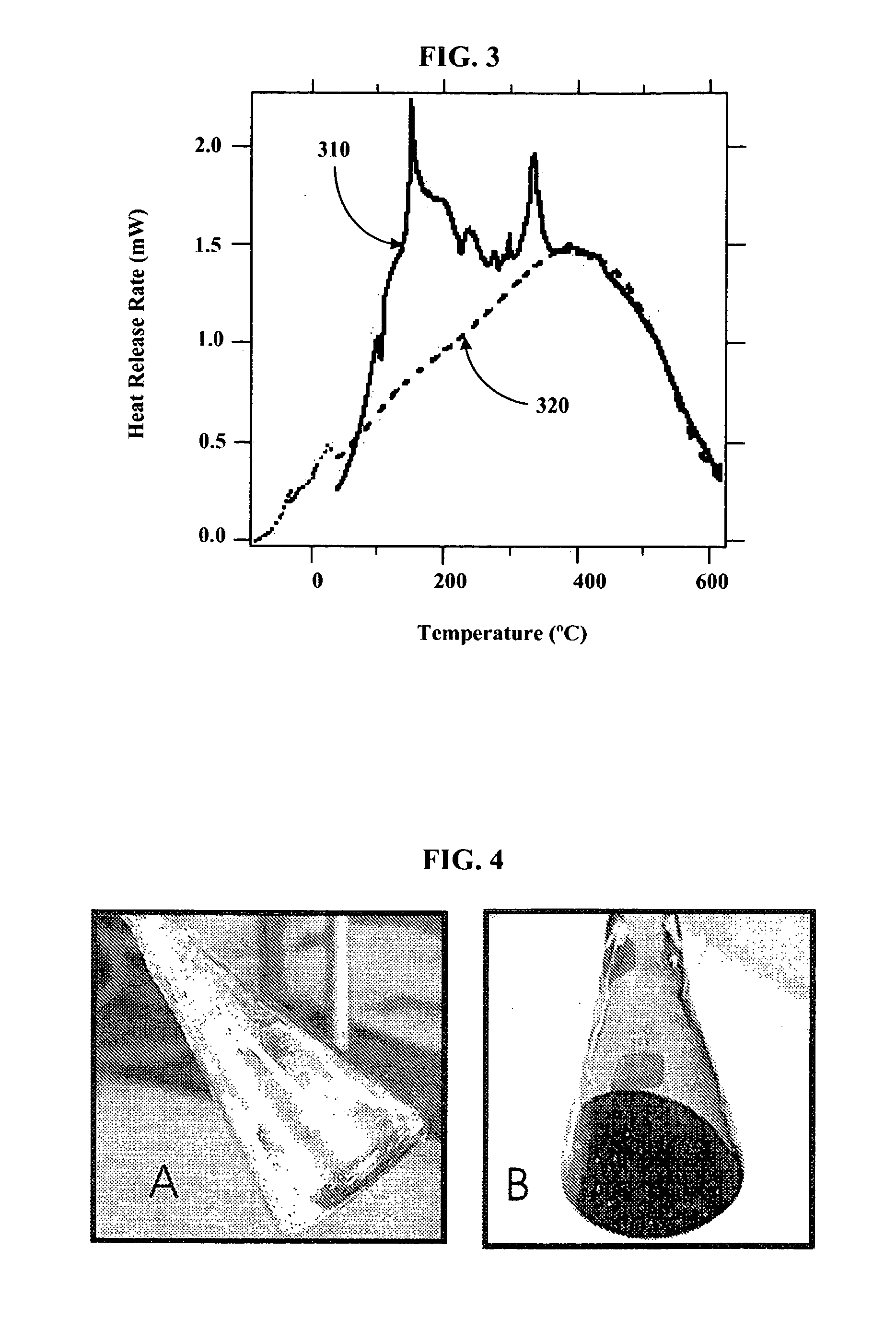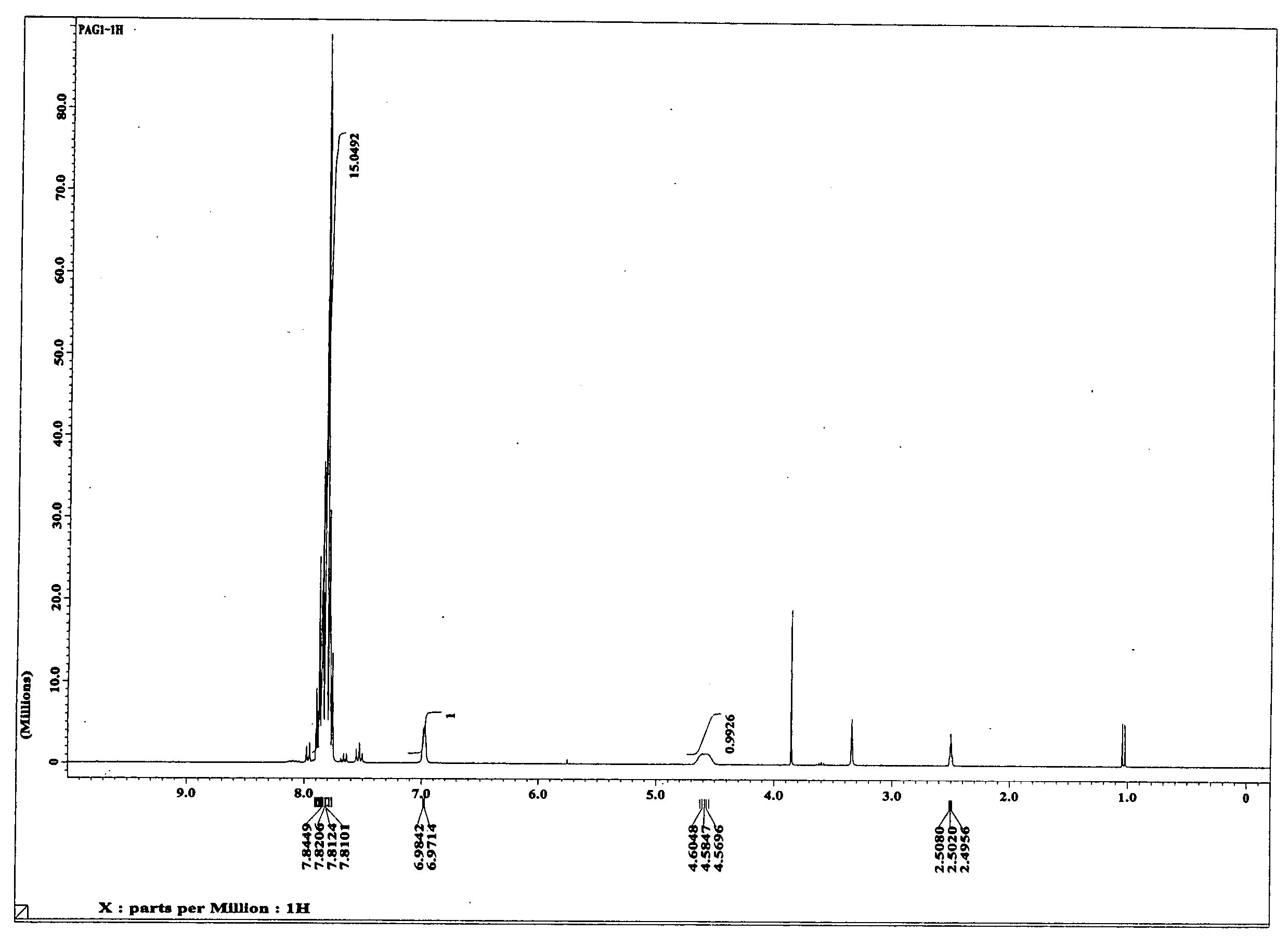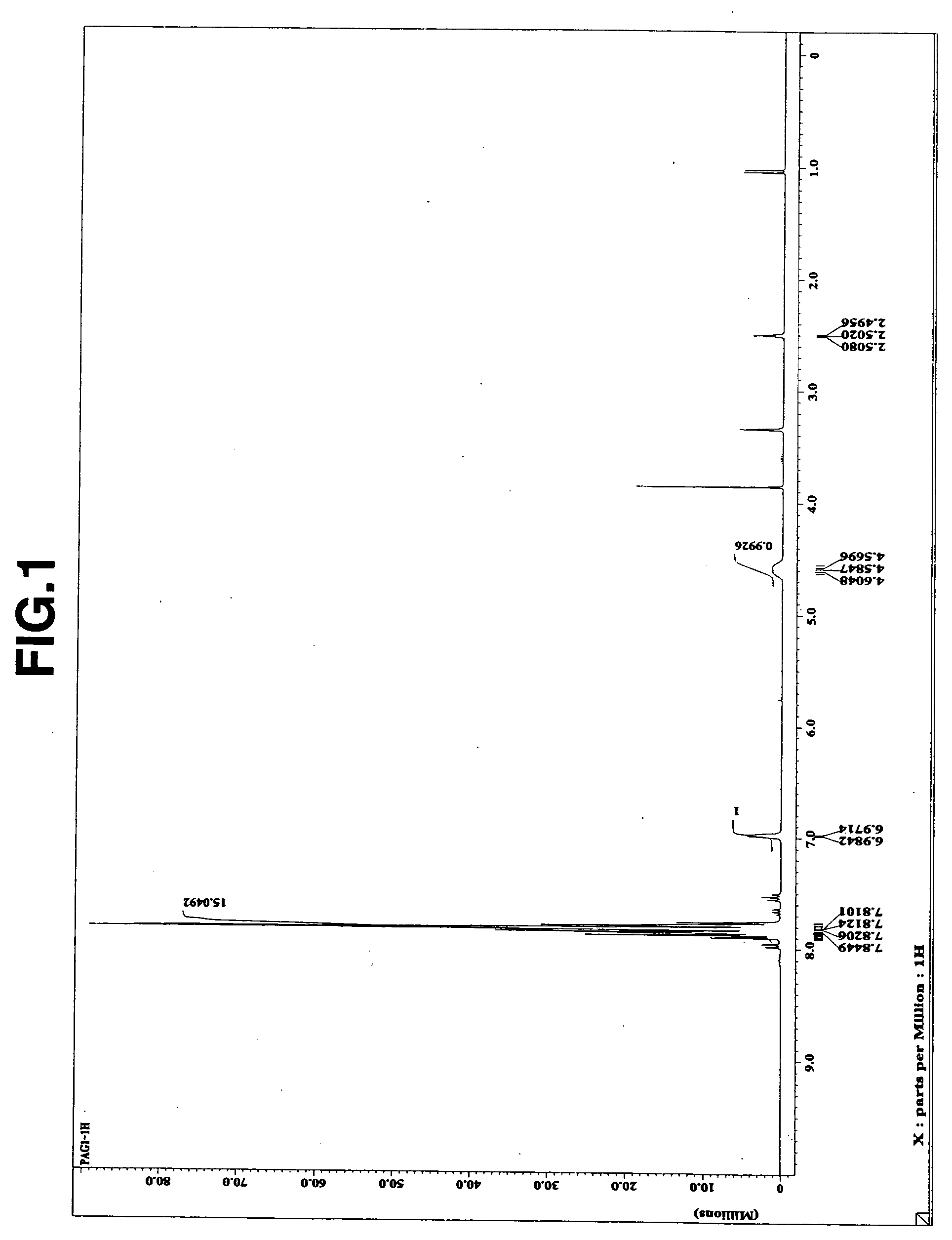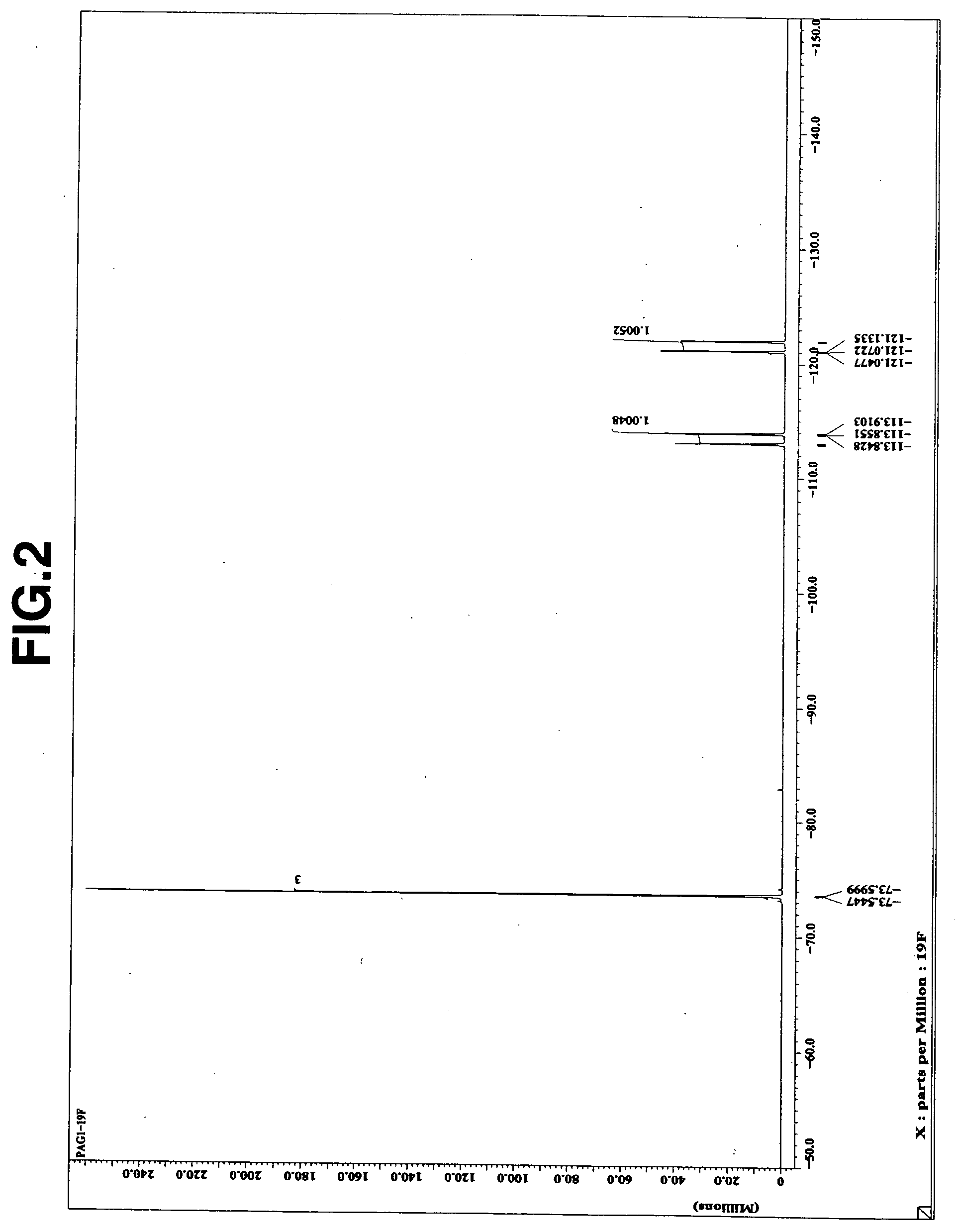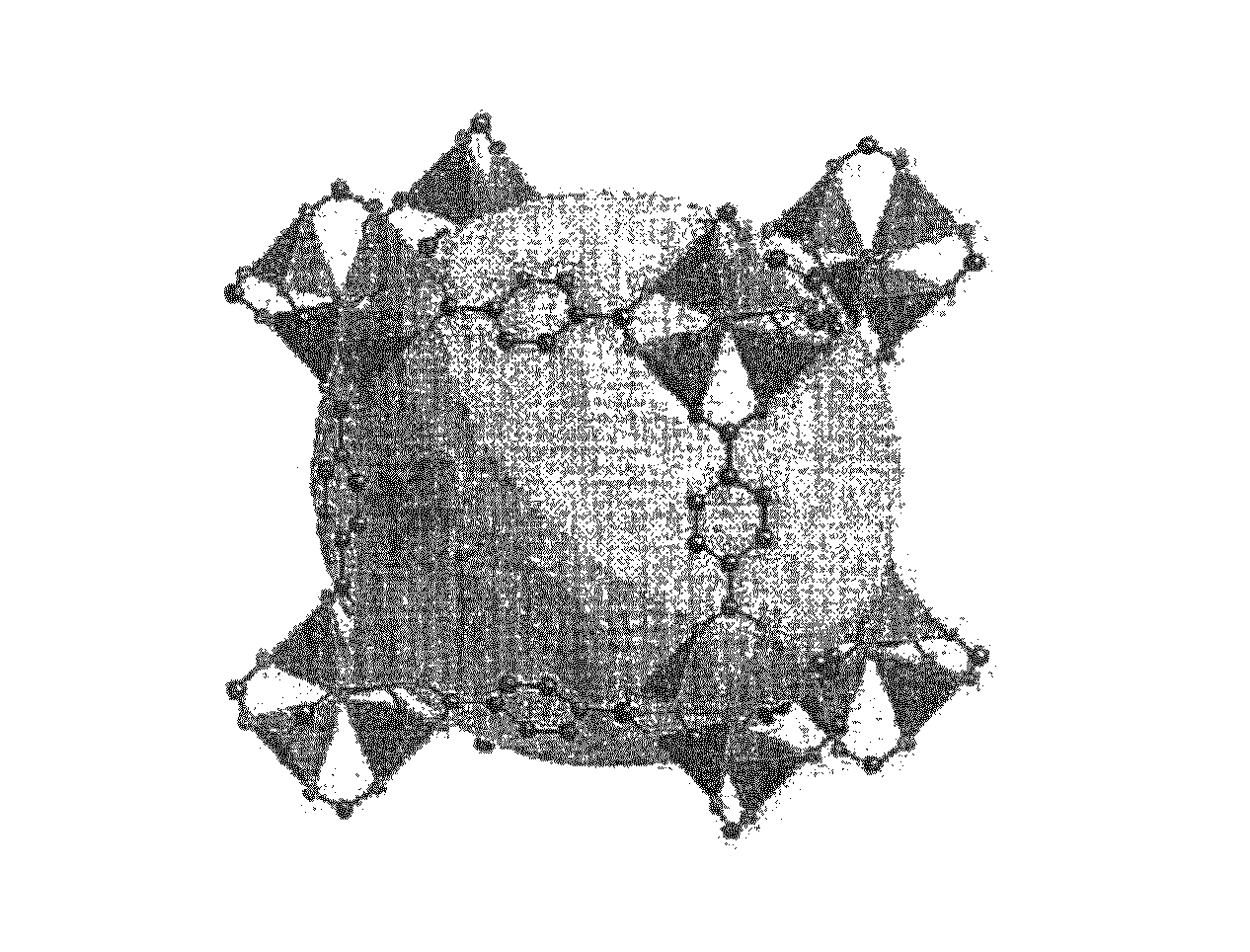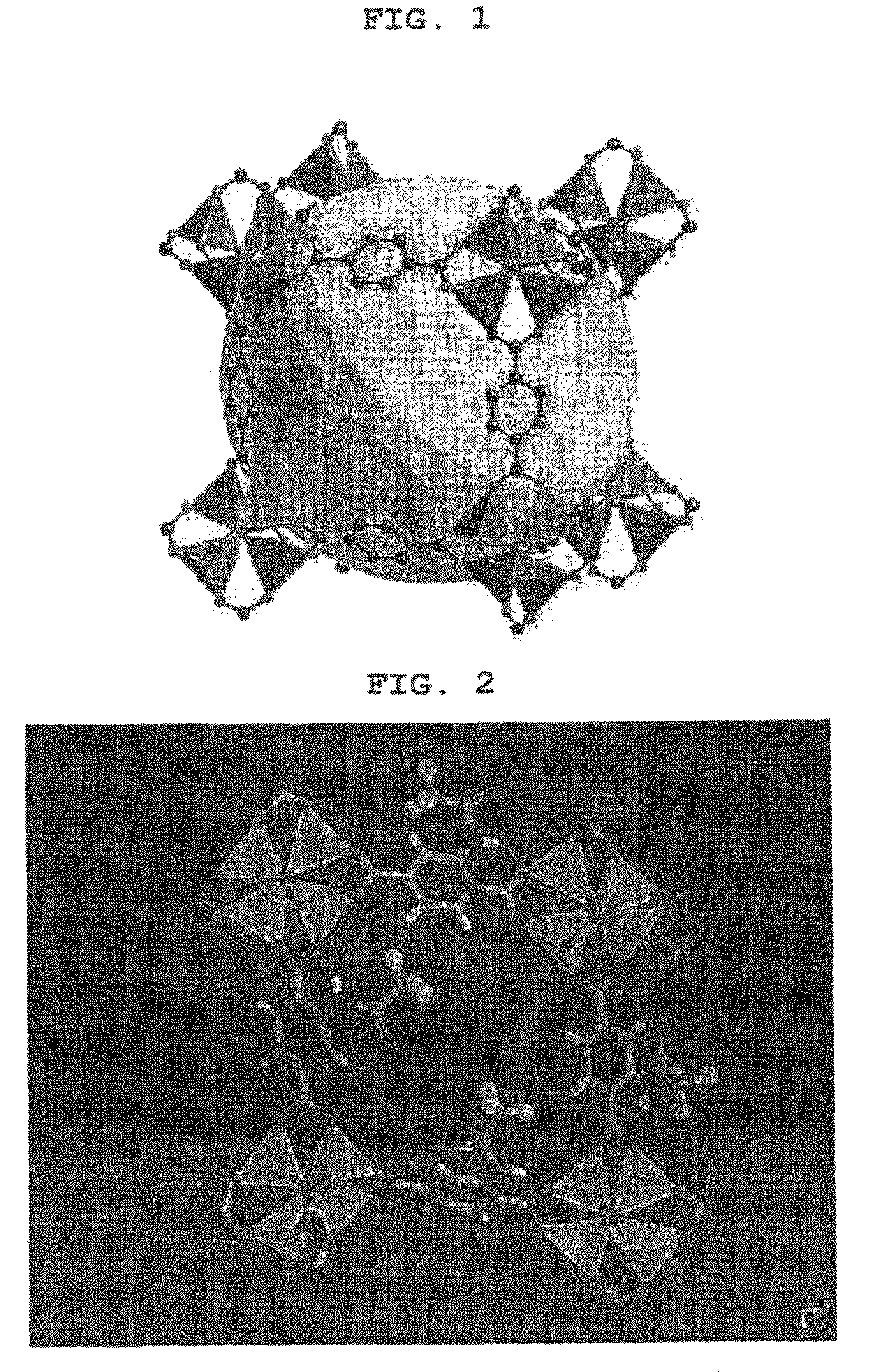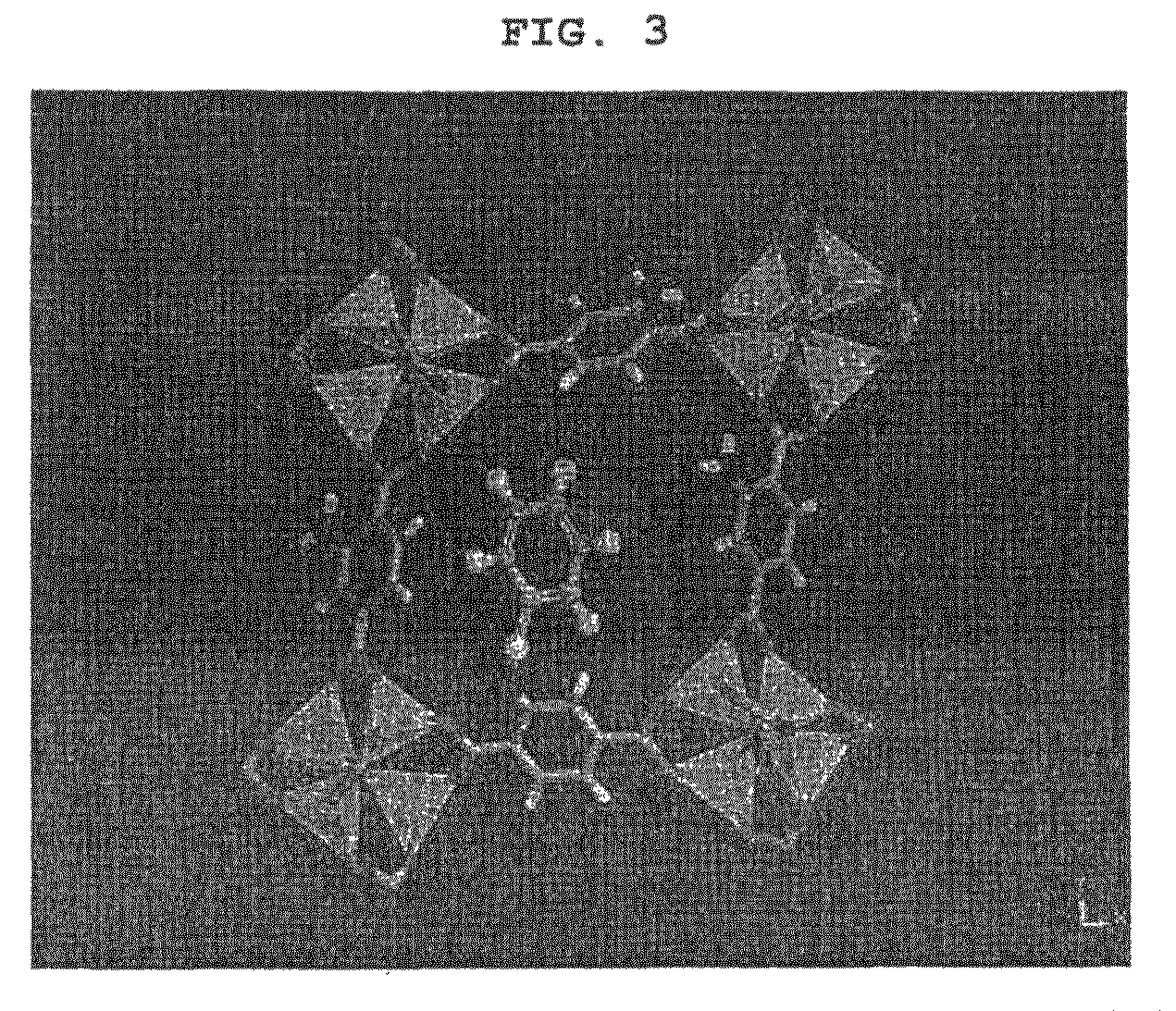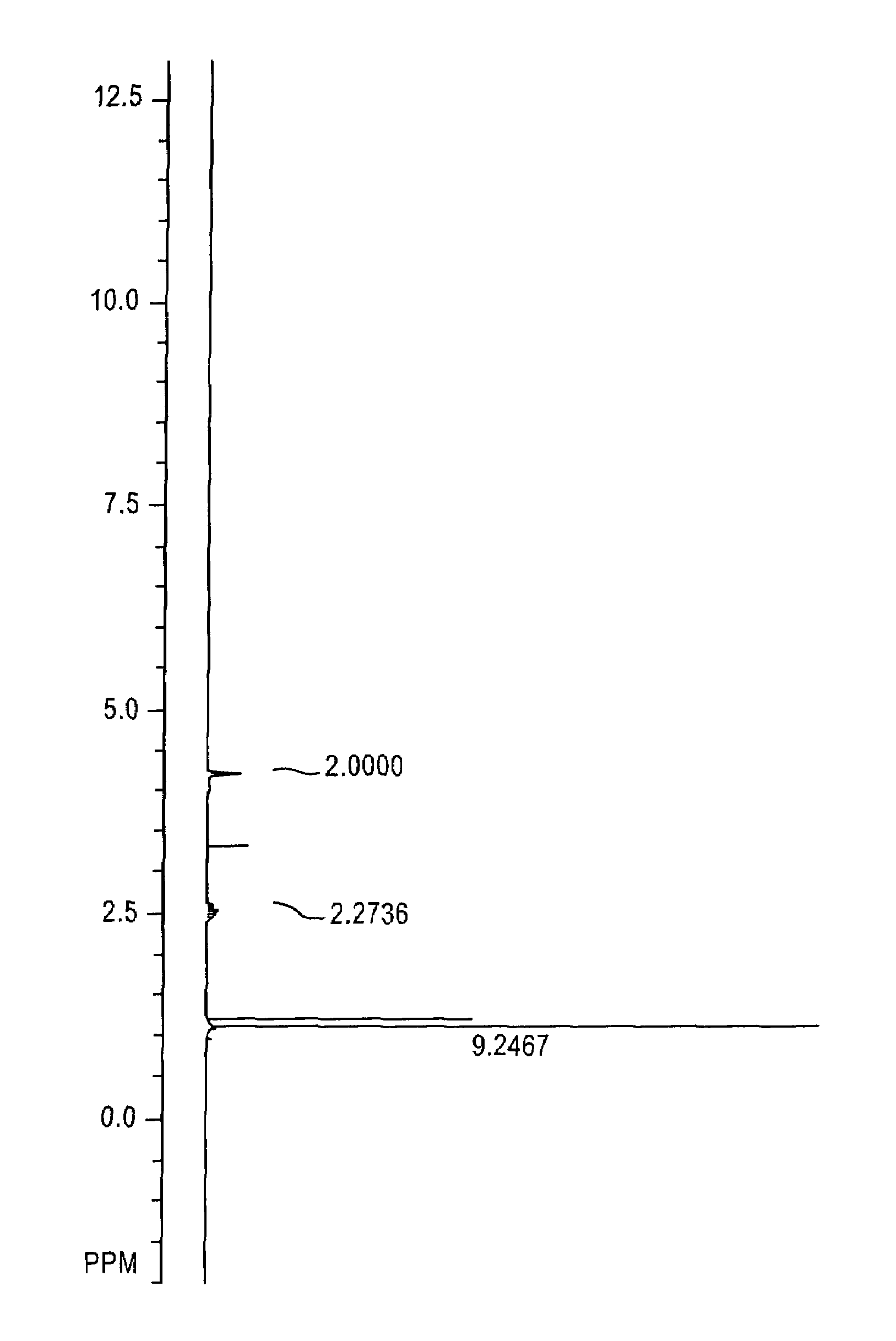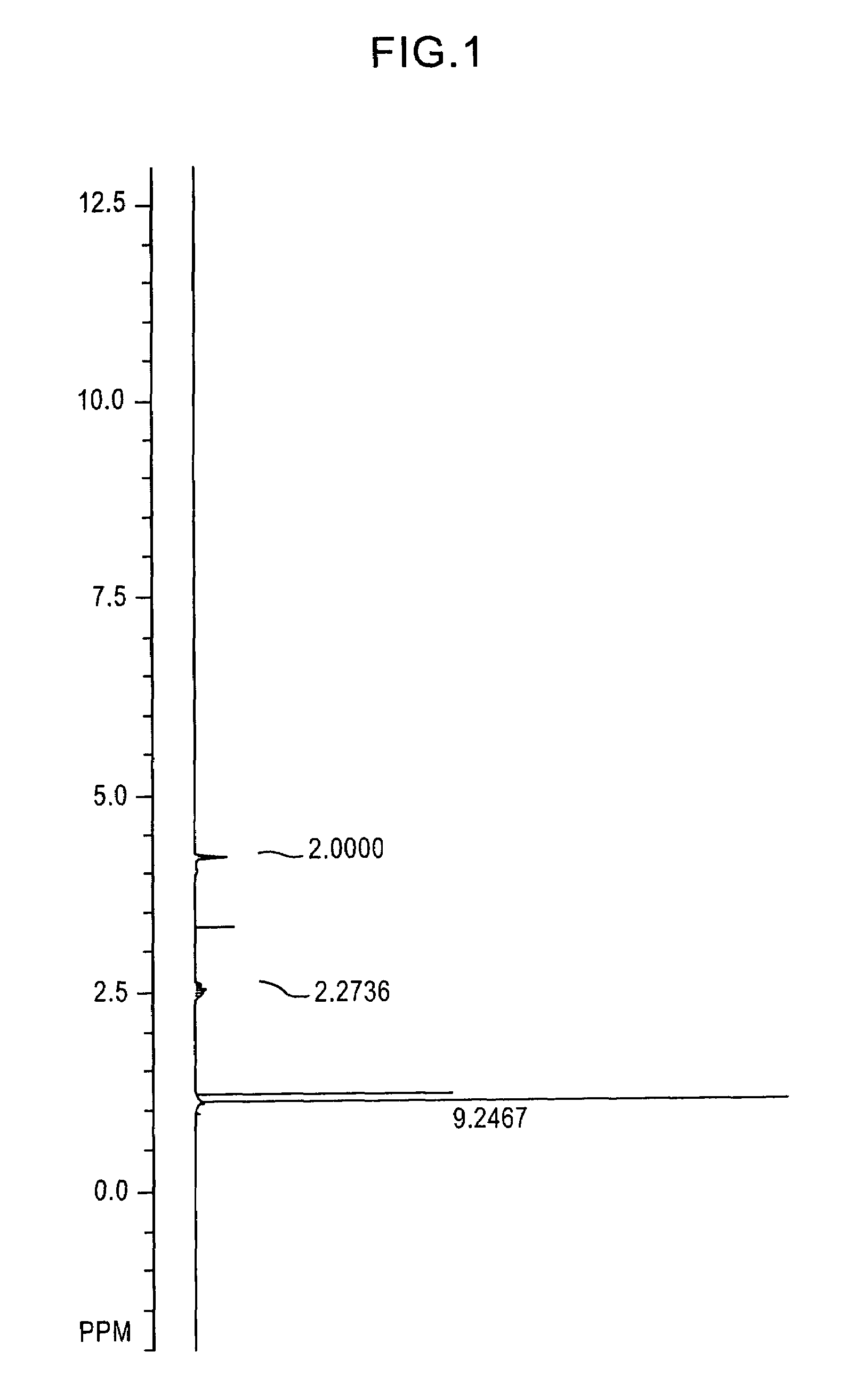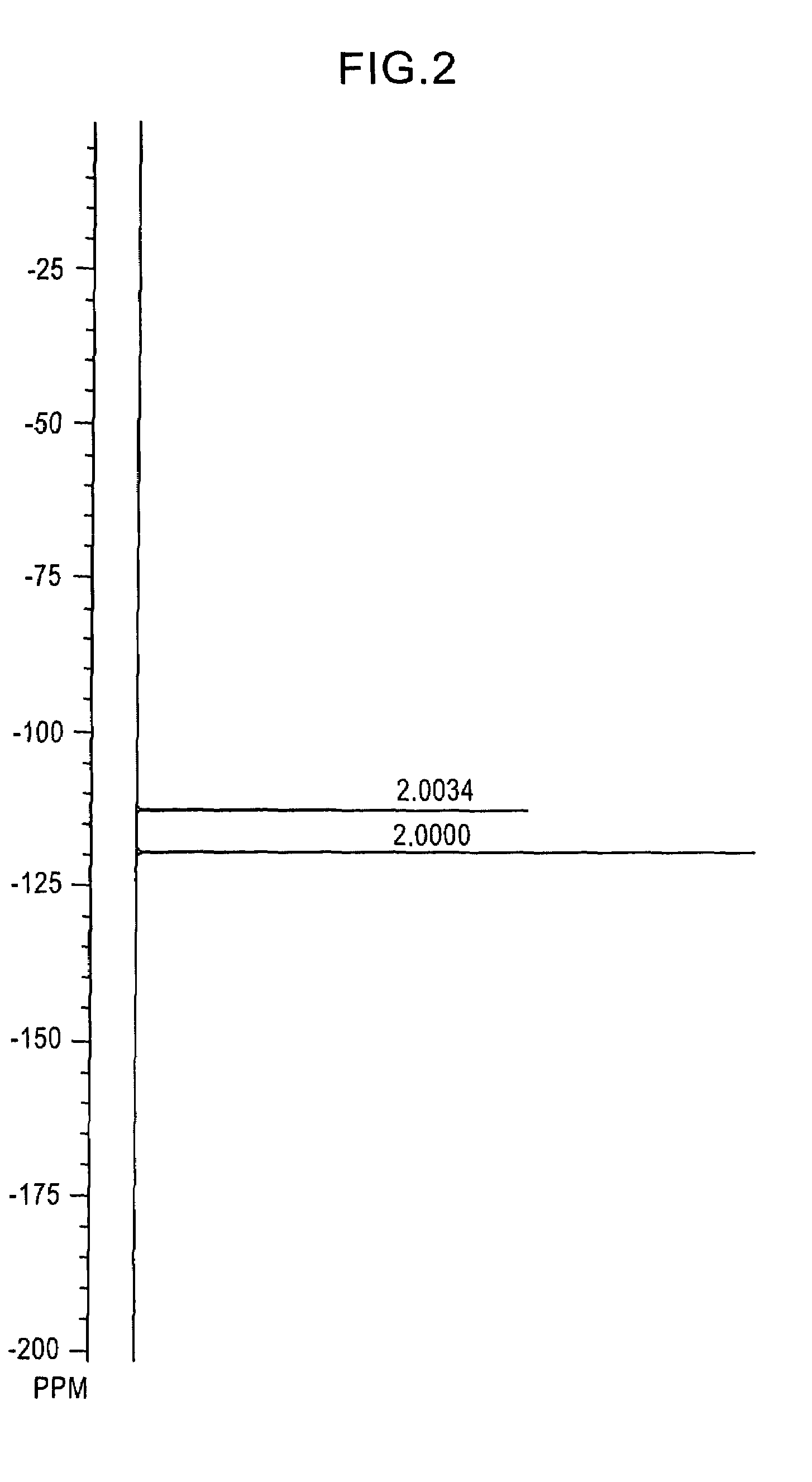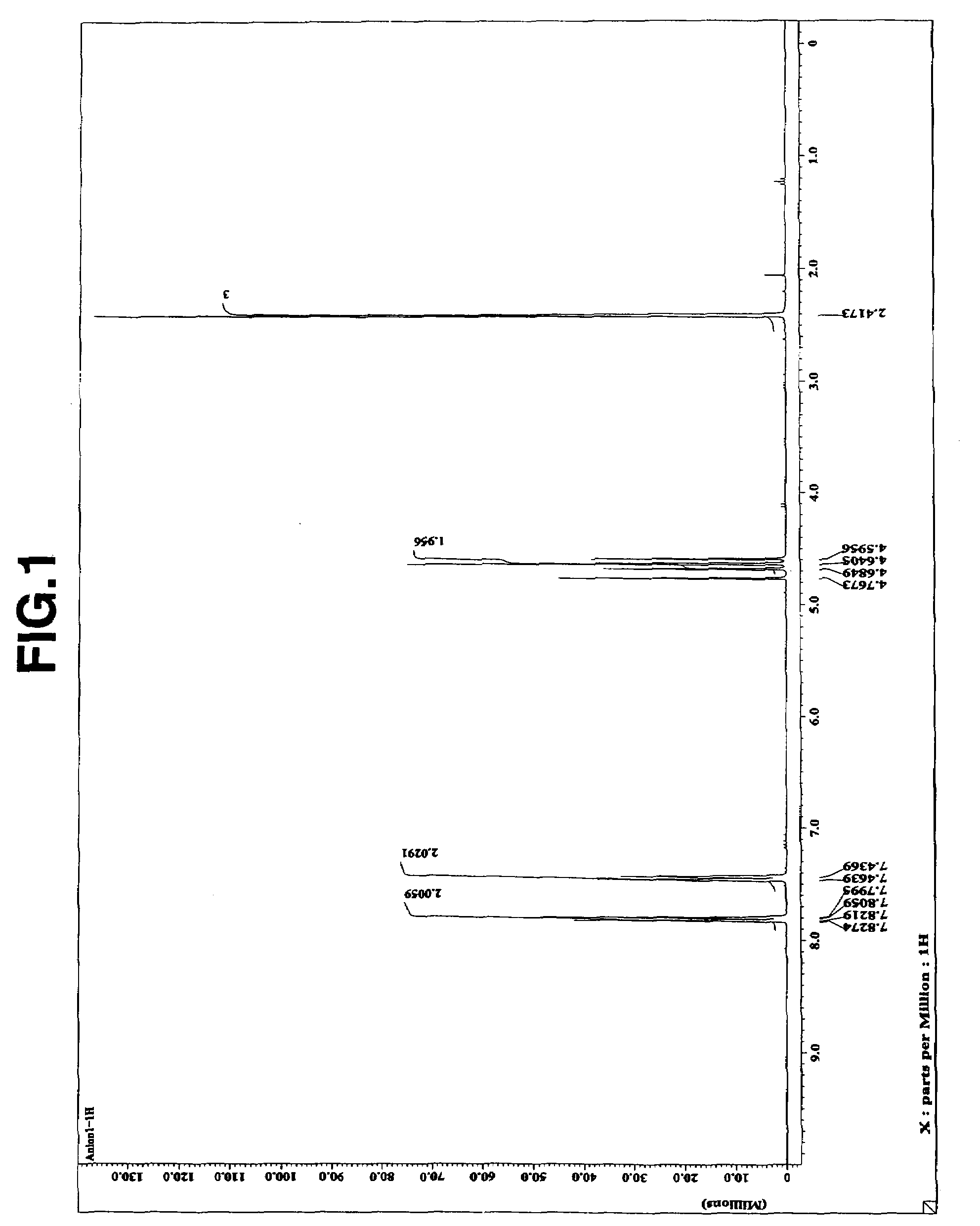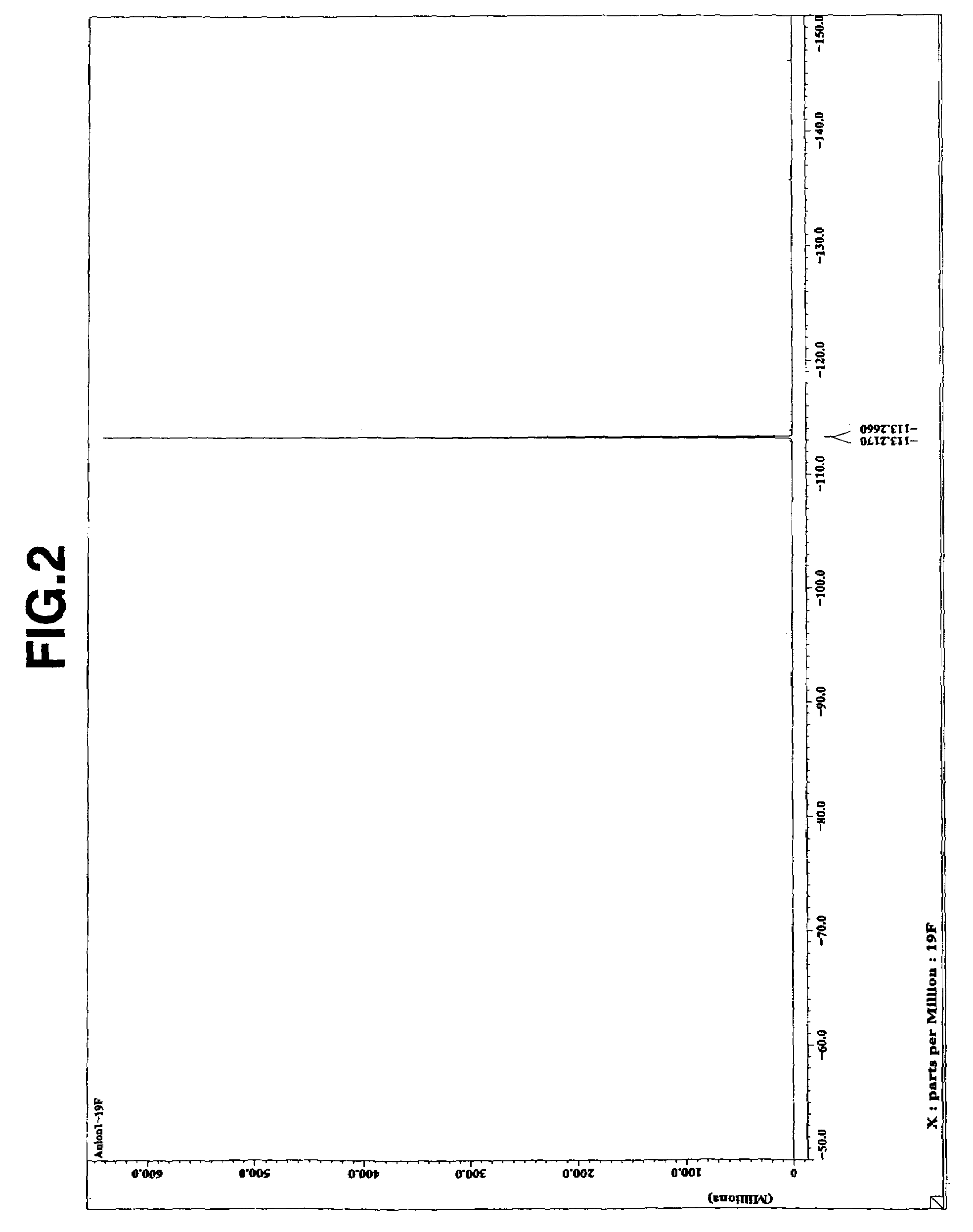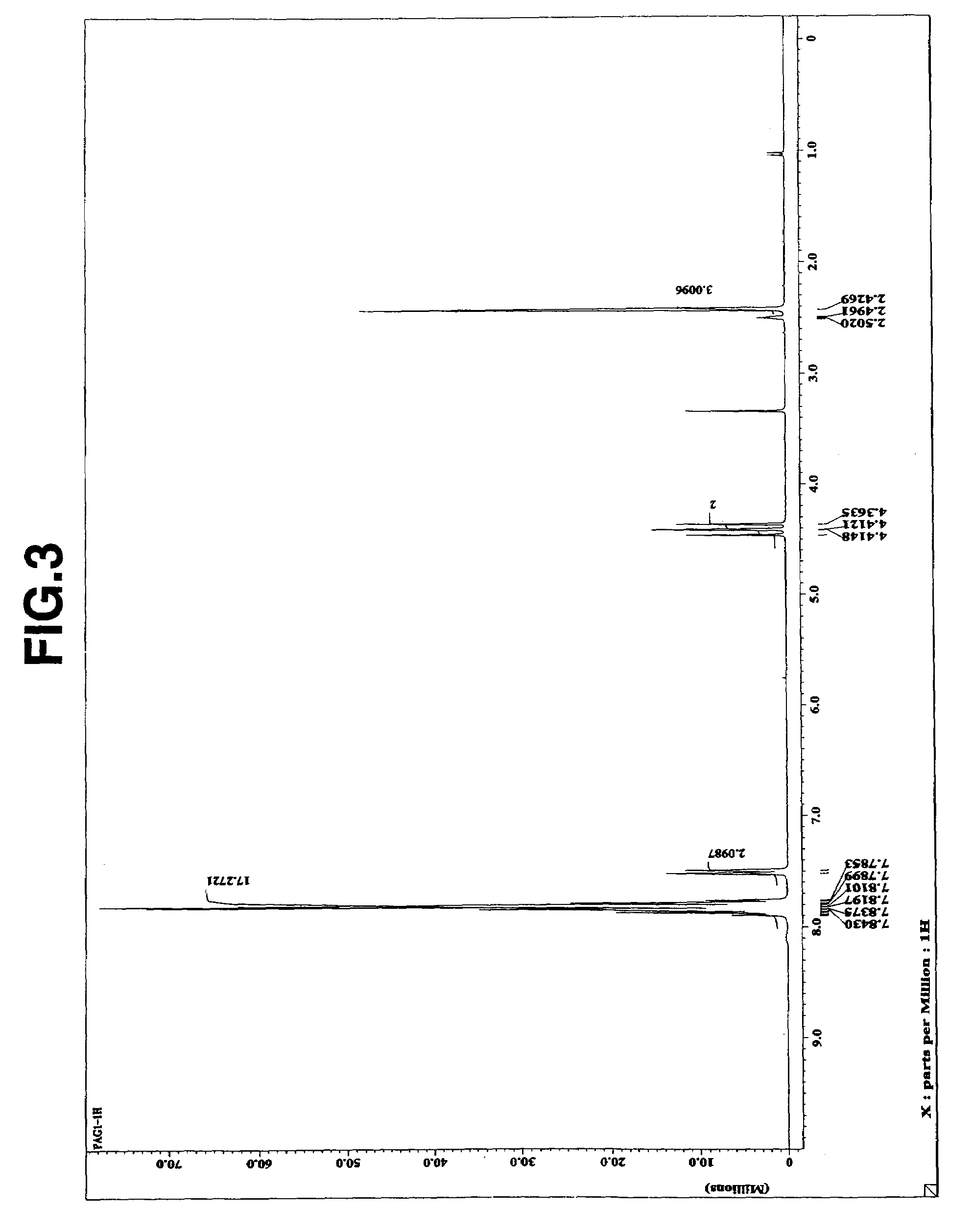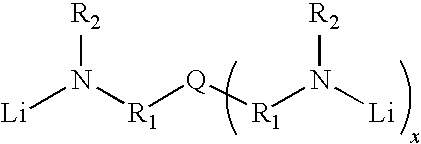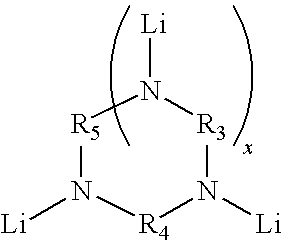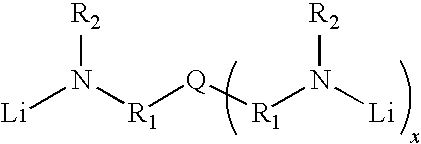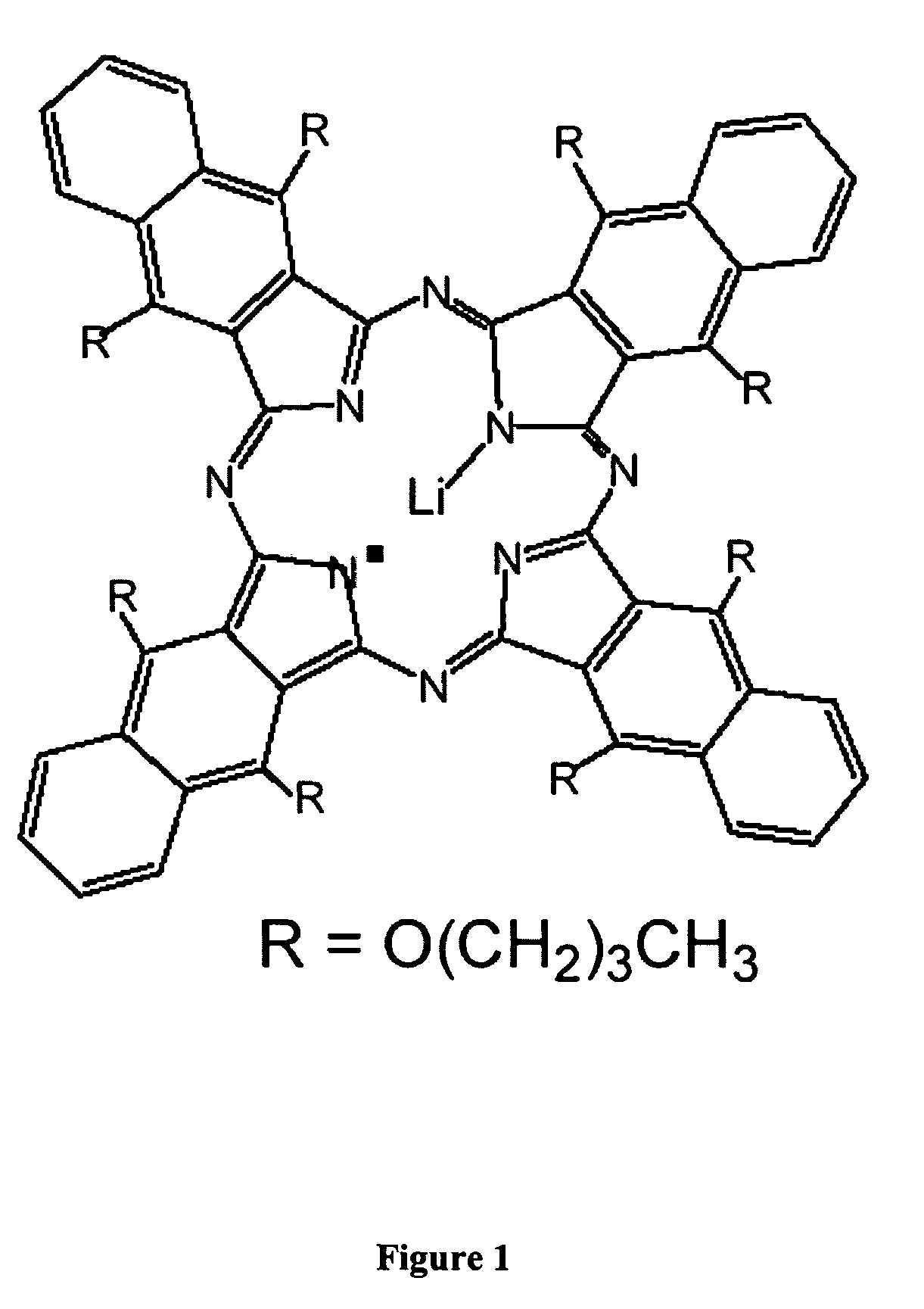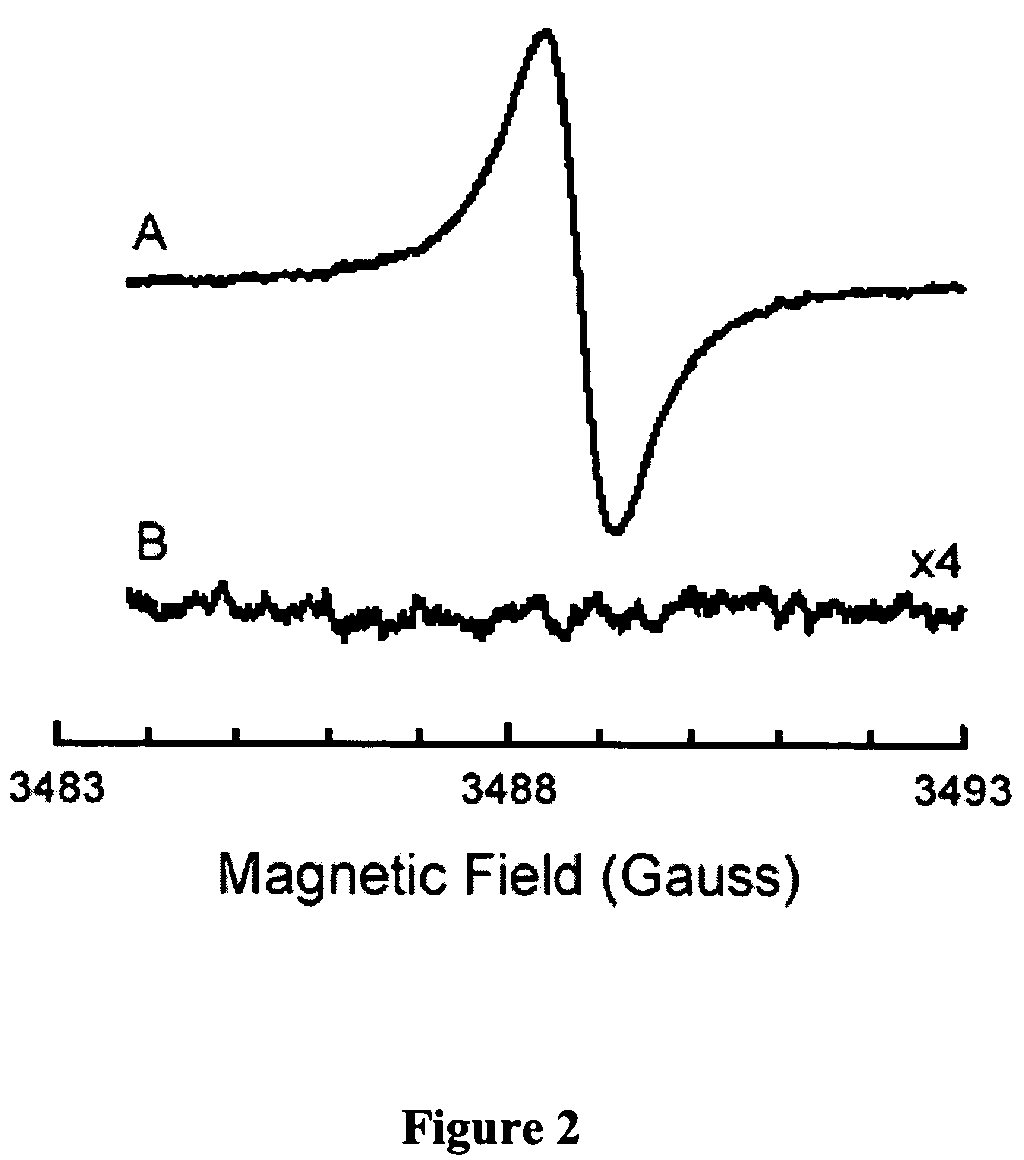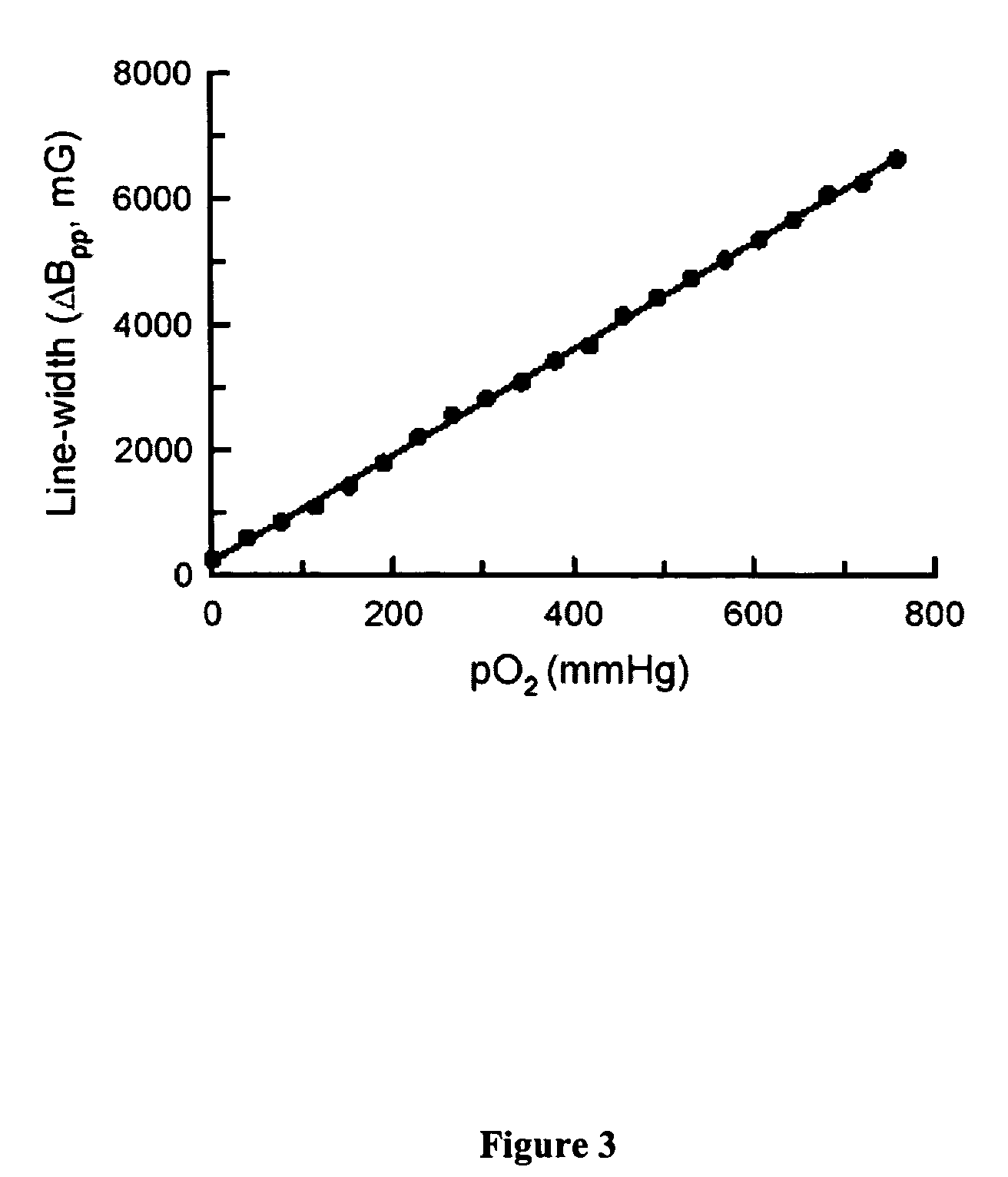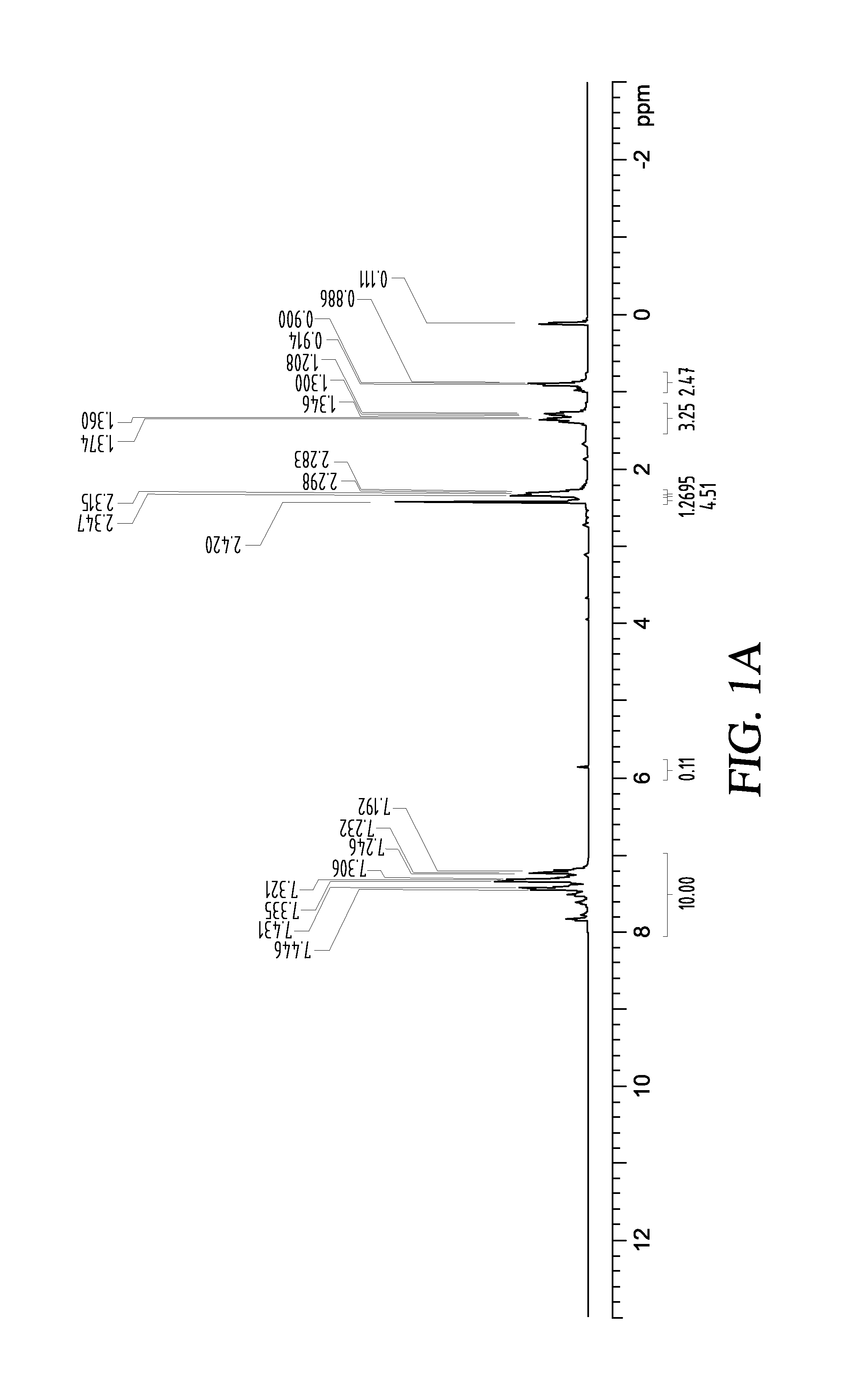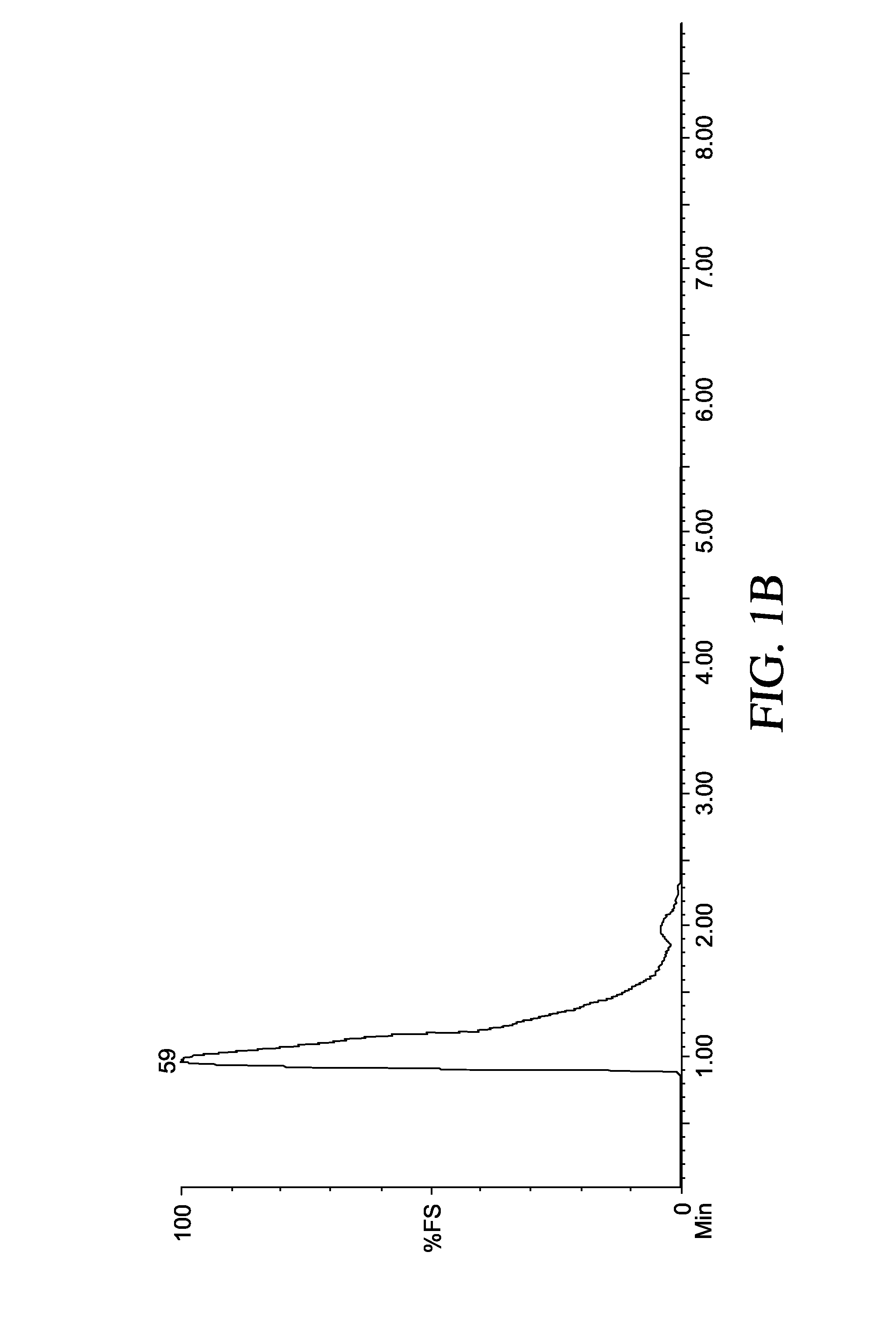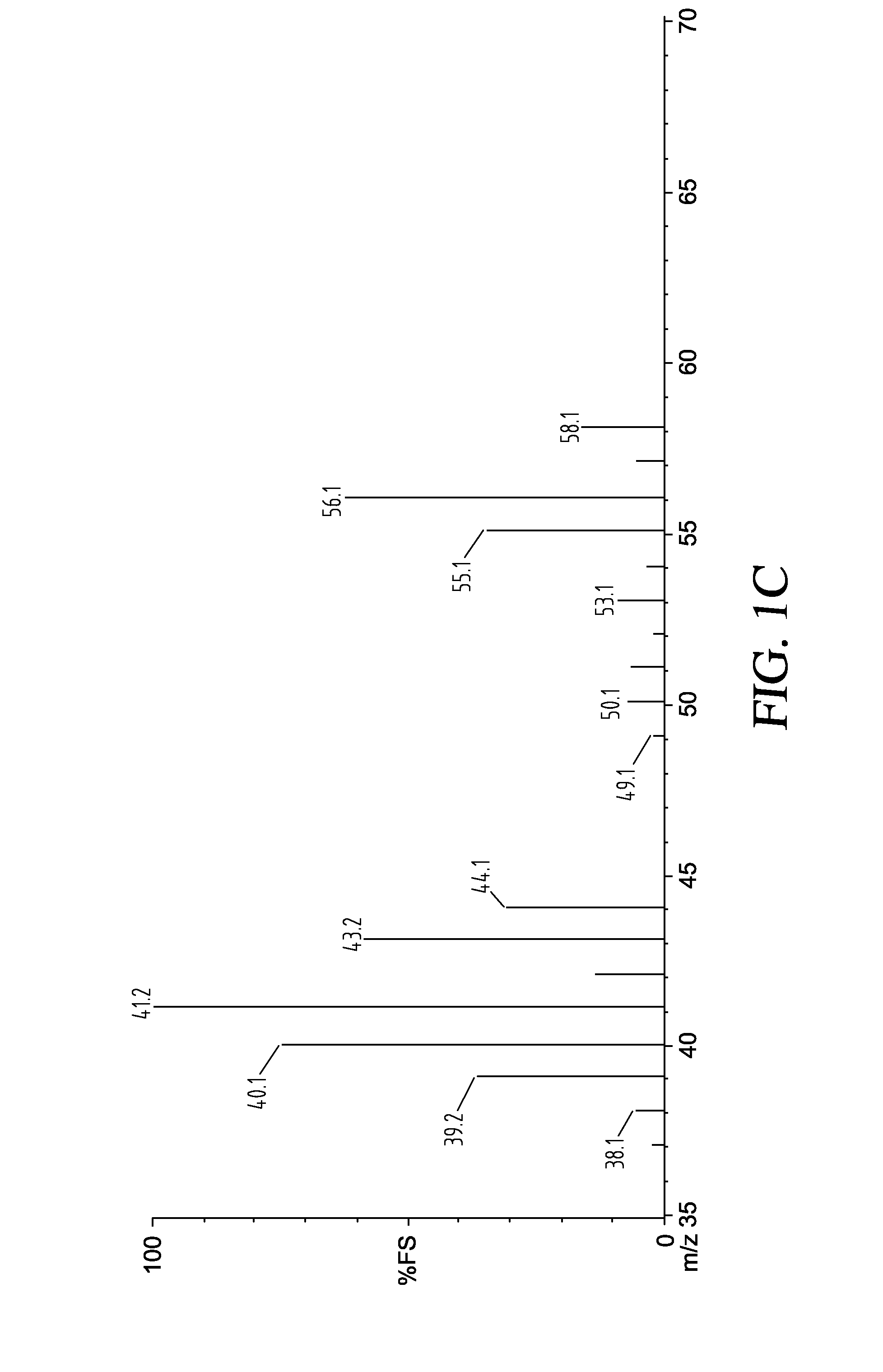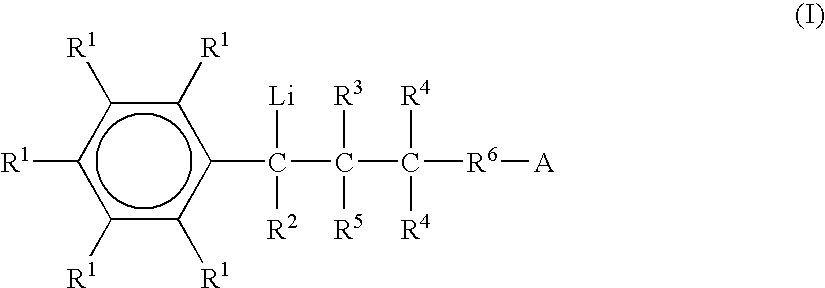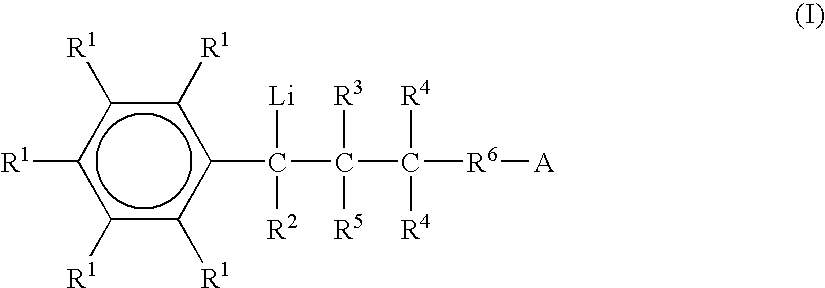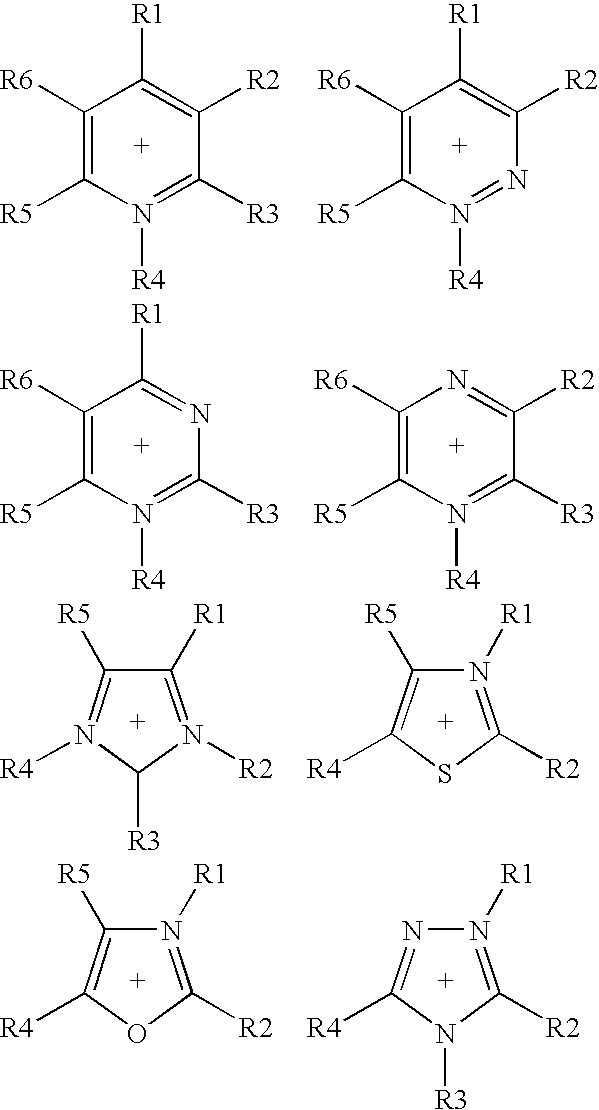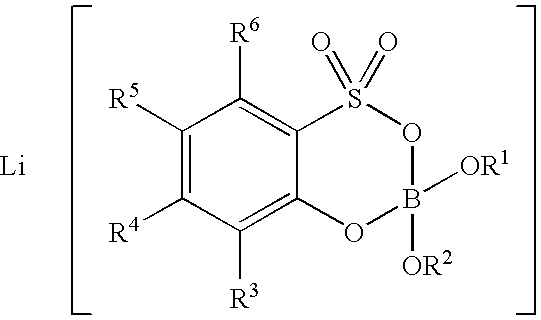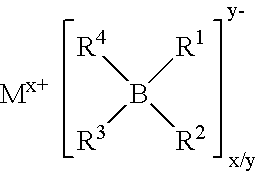Patents
Literature
325results about "Lithium organic compounds" patented technology
Efficacy Topic
Property
Owner
Technical Advancement
Application Domain
Technology Topic
Technology Field Word
Patent Country/Region
Patent Type
Patent Status
Application Year
Inventor
Use of sulfur containing initiators for anionic polymerization of monomers
InactiveUS7153919B2Reduced hysteresis lossSilicon organic compoundsLithium organic compoundsElastomerRolling resistance
An initiator is presented for anionically polymerizing monomers, to provide a functional head group on the polymer. A polymer having a functional head group derived from a sulfur containing anionic initiator, and optionally as additional functional group resulting from the use of a functional terminating reagent, coupling agent or linking agent is also provided. A method is presented for anionically polymerizing monomers comprising the step of polymerizing the monomers with a sulfur containing anionic initiator to provide a functional head group on the polymer. An elastomeric compound, comprising a functional polymer and filler is also described. Also provided is a tire having decreased rolling resistance resulting from a tire component containing a vulcanizable elastomeric compound.
Owner:BRIDGESTONE CORP
Use of sulfur containing initiators for anionic polymerization of monomers
ActiveUS20060030657A1Reduced hysteresis lossSilicon organic compoundsLithium organic compoundsElastomerRolling resistance
An initiator is presented for anionically polymerizing monomers, to provide a functional head group on the polymer. A polymer having a functional head group derived from a sulfur containing anionic initiator, and optionally as additional functional group resulting from the use of a functional terminating reagent, coupling agent or linking agent is also provided. A method is presented for anionically polymerizing monomers comprising the step of polymerizing the monomers with a sulfur containing anionic initiator to provide a functional head group on the polymer. An elastomeric compound, comprising a functional polymer and filler is also described. Also provided is a tire having decreased rolling resistance resulting from a tire component containing a vulcanizable elastomeric compound.
Owner:BRIDGESTONE CORP
Processes for preparing highly pure lithium carbonate and other highly pure lithium containing compounds
ActiveUS20110200508A1Electrolysis componentsLithium organic compoundsLithium carbonateLithium hydroxide
Owner:TERRALITHIUM LLC
Method of preparing a polymer using aliphatic solutions of aminoalkyllithium compounds
A method for reducing the amount of aliphatic solvent needed for maintaining aminoalkyllithium initiators in solution comprising the step of combining at least one aminoalkyllithium compound with a second, dissimilar lithioamine.
Owner:BRIDGESTONE CORP
Novel sulfonate salts and derivatives, photoacid generators, resist compositions, and patterning process
ActiveUS20080124656A1Increase acidityInhibits the formation of defectsLithium organic compoundsOrganic compound preparationResistPhotoacid
Sulfonate salts have the formula: R1COOCH2CH2CF2CF2SO3−M+ wherein R1 is alkyl, aryl or hetero-aryl, M+ is a Li, Na, K, ammonium or tetramethylammonium ion. Onium salts, oxime sulfonates and sulfonyloxyimides derived from these salts are effective photoacid generators in chemically amplified resist compositions.
Owner:SHIN ETSU CHEM IND CO LTD
Intermolecularly bound transition element complexes for oxygen-selective adsorption
InactiveUS6989044B2Stable and porous coordination frameworkPromote formationGas treatmentLithium organic compoundsChemisorptionOxygen
A process and composition for selectively adsorbing oxygen from a gaseous mixture. The chemisorption is carried out by a porous three-dimensional transition element complex comprised of intermolecularly bound TEC units, said units further comprised of at least one multidentate ligand forming at least one five- or six-membered chelate ring on each unit.
Owner:PRAXAIR TECH INC
Styryl dyes
The present invention provides styryl dyes which have absorption maxima at a wavelength of 400 nm or less and are sensitive to a laser beam with a wavelength of 450 nm or less, light absorbents and optical recording media which comprise the styryl dyes, and a process for producing the styryl dyes which comprises reacting with an aldehyde compound a quaternary ammonium salt of nitrogen atom containing heterocyclic compound having an active methyl or active methylene group.
Owner:KABAYUSHI KAISHI HAYASHIBARA SEIBUTSU KAGAKU KENKYUJO
Surface modified carbonaceous materials
Grafting a polymer at the surface of a carbonated material containing carboxyl, amine and / or hydroxyl functions at its surface. This material is suspended in a solution comprising the polymer to be grafted, which includes a carboxyl, amine and / or hydroxyl function, the solution also comprising a solvent of the polymer. This is followed by a treatment causing dehydration into a carboxyl function, an amide and / or hydroxyl function and the polymer is thus grafted on the carbonated material by means of ester or amide bonds. Utilization in the cathode or anode of an electrochemical generator, in a polymer material with low polarity, in an ink, and as a conductive deposit on flexible plastic used as electrical contact, electromagnetic protection and antistatic protection.
Owner:HYDRO QUEBEC CORP +1
Organic light emitting device and manufacturing method thereof
ActiveCN106328816ASimple structureReduce production processLithium organic compoundsSolid-state devicesElectron holeOrganic light emitting device
The invention relates to an organic light emitting device, which comprises a substrate, and a light emitting device formed on the substrate, wherein the light emitting device is composed of a first electrode layer, a light emitting layer and a second electrode layer; the light emitting layer comprises a main body material and a dye; the main body material is formed by materials with a hole transport ability; the triplet energy level T1 of at least one material in the main body material is higher than a triplet energy level S1, and T1-S1 < / =0.3eV; or, the triplet energy level T1 of at least one material in the main body material is higher than the triplet energy level S1, and T1-S1 > / =1eV, and the difference between the doublet and triplet energy level and the singlet energy level is -0.1 to 0.1 eV. The device structure can make full use the triplet energy in the main body material and the dye, and while the light emitting efficiency is improved, the service life of the device is enhanced.
Owner:KUNSHAN GO VISIONOX OPTO ELECTRONICS CO LTD +1
Protected aminofunctionalized polymerization initiators and methods of making and using same
InactiveUS6943250B2High solubility of initiatorImprove initiator solubilitySilicon organic compoundsLithium organic compoundsProtecting groupAmino functionalized
Anionic polymerization initiators useful in the preparation of polymers having a protected amine functional group. The amine functionality is part of a heterocyclic radical and includes a protecting group.
Owner:FMC CORP
Novel sulfonate salts and derivatives, photoacid generators, resist compositions, and patterning process
ActiveUS20070298352A1Increase acidityAvoid excessive accumulationLithium organic compoundsPhotosensitive materialsResistSulfonate
Owner:SHIN ETSU CHEM IND CO LTD
Coordination Polymer Crystal With Porous Metal-Organic Frameworks and Preparation Method Thereof
ActiveUS20100174047A1Low efficiencyInhibition releaseLithium organic compoundsReversible hydrogen uptakeSimple Organic CompoundsMetal clusters
Disclosed is a coordination polymer crystal with porous metal-organic frameworks (MOFs), in which, while a crystal state of the coordination polymer crystal is maintained, an additional material selected from the group consisting of an organic compound, a metal cluster, and an organometallic compound is chemically bonded to the coordination polymer crystal. Therefore it is possible easily adsorb and store more guest molecules regardless of a change in an ambient temperature or pressure due to the chemically bonded additional material.
Owner:INSILICO CO LTD
Silica gel compositions containing alkali metals and alkali metal alloy
ActiveUS20050151278A1Preparation by hydrogen halide split-offLithium organic compoundsChemical reactionRoom temperature
The invention relates to Group 1 metal / silica gel compositions comprising silica gel and an alkali metal or an alkali metal alloy. The compositions of the inventions are described as Stage 0, I, II, and III materials. These materials differ in their preparation and chemical reactivity. Each successive stage may be prepared directly using the methods described below or from an earlier stage material. Stage 0 materials may, for example, be prepared using liquid alloys of Na and K which are rapidly absorbed by silica gel (porous SiO2) under isothermal conditions, preferably at or just above room temperature, to form loose black powders that retain much of the reducing ability of the parent metals. When the low melting Group 1 metals are absorbed into the silica gel, a mild exothermic reaction produces Stage I material, loose black powders that are indefinitely stable in dry air. Subsequent heating to 400° C. produces Stage II materials, which are also loose black powders. Further heating above 400° C. forms Stage III material with release of some Group 1 metal. It is believed that Stage I, II and III materials represent reductions of the silica gel after absorption of the Group 1 metal. Preferred Group 1 metal / silica gel compositions of the invention are those containing sodium, potassium, or sodium-potassium alloys with sodium and sodium-potassium alloys being most preferred. Each stage of the Group 1 metal / silica gel composition of the invention may be used as a reducing agent reacting with a number of reducible organic materials in the same manner known for alkali metals and their alloys.
Owner:SIGNA CHEM INC +1
Hybrid Catalyst for Olefin Metathesis
InactiveUS20120289617A1Easy to separateHigh selectivityCation exchanger materialsLithium organic compoundsOrganic chemistryOlefin metathesis
Owner:SAUDI ARABIAN OIL CO
Surface modified carbonaceous materials
Grafting a polymer at the surface of a carbonated material containing carboxyl amine and / or hydroxyl functions at its surface. This material is suspended in a solution comprising the polymer to be grafted, which includes a carboxyl amine and / or hydroxyl function, the solution also comprising a solvent of the polymer. This is followed by a treatment causing dehydration into a carboxyl function, an amide and / or hydroxyl function and the polymer is thus grafted on the carbonated material by means of ester or amide bonds. Utilization in the cathode or anode of an electrochemical generator, in a polymer material with low polarity, in an ink, and as a conductive deposit on flexible plastic used as electrical contact, electromagnetic protection and antistatic protection.
Owner:HYDRO QUEBEC CORP +1
Non-aqueous liquid electrolyte, electricity storage device using same, and phosphorus compound used therein
ActiveUS20170275311A1Low-temperature propertiesHybrid capacitor electrolytesLithium organic compoundsElectrolytic agentAryl
The present invention is concerned with a nonaqueous electrolytic solution having an electrolyte salt dissolved in a nonaqueous solvent, the nonaqueous electrolytic solution containing a compound represented by the following general formula (X), in which a polar group (X) is bound to a phosphorus atom (P), and capable of improving electrochemical characteristics in a broad temperature range; an energy storage device using the same; and a novel compound.In the formula, R10 and R20 are each independently an organic group selected from the group consisting of an alkyl group having 1 to 8 carbon atoms, an alkenyl group having 2 to 6 carbon atoms, an alkynyl group having 3 to 6 carbon atoms, and an aryl group having 6 to 12 carbon atoms, or a lithium atom; and X is a polar group (i) containing a —C(═O) group, a —P(═O) group, or an —S(═O)2 group, a polar group (ii) containing a —CN group or an alkyl group having 1 to 6 carbon atoms, in which a part of hydrogen atoms is substituted with a fluorine atom, or a 4- to 7-membered ring polar group (iii) containing a —C(═O)—O— group or a —C(═O)—N— group, provided that when X is a 4- to 7-membered ring polar group (iii) containing a —C(═O)—N— group, at least one of R10 and R20 is a lithium atom.
Owner:MU IONIC SOLUTIONS CORP
Novel sulfonate salts and derivatives, photoacid generators, resist compositions, and patterning process
ActiveUS20070099112A1Increase acidityReduce molecular weightLithium organic compoundsOrganic compound preparationResistSulfonate
Sulfonate salts have the formula: R1SO3—CH(Rf)-CF2SO3−M+ wherein R1 is alkyl or aryl, Rf is H or trifluoromethyl, and M+ is a Li, Na, K, ammonium or tetramethylammonium ion. Onium salts, oximesulfonates and sulfonyloxyimides and other compounds derived from these sulfonate salts are effective photoacid generators in chemically amplified resist compositions.
Owner:SHIN ETSU CHEM IND CO LTD
Silica gel compositions containing alkali metals and alkali metal alloys
ActiveUS7211539B2Lithium organic compoundsPreparation by hydrogen halide split-offChemical reactionLiquid state
The invention relates to Group 1 metal / silica gel compositions comprising silica gel and an alkali metal or an alkali metal alloy. The compositions of the inventions are described as Stage 0, I, II, and III materials. These materials differ in their preparation and chemical reactivity. Each successive stage may be prepared directly using the methods described below or from an earlier stage material. Stage 0 materials may, for example, be prepared using liquid alloys of Na and K which are rapidly absorbed by silica gel (porous SiO2) under isothermal conditions, preferably at or just above room temperature, to form loose black powders that retain much of the reducing ability of the parent metals. When the low melting Group 1 metals are absorbed into the silica gel, a mild exothermic reaction produces Stage I material, loose black powders that are indefinitely stable in dry air. Subsequent heating to 400° C. produces Stage II materials, which are also loose black powders. Further heating above 400° C. forms Stage III material with release of some Group 1 metal. It is believed that Stage I, II and III materials represent reductions of the silica gel after absorption of the Group 1 metal. Preferred Group 1 metal / silica gel compositions of the invention are those containing sodium, potassium, or sodium-potassium alloys with sodium and sodium-potassium alloys being most preferred. Each stage of the Group 1 metal / silica gel composition of the invention may be used as a reducing agent reacting with a number of reducible organic materials in the same manner known for alkali metals and their alloys.
Owner:SIGNA CHEM INC +1
Novel sulfonate salts and derivatives, photoacid generators, resist compositions, and patterning process
ActiveUS20070099113A1Avoid excessive accumulationMore combustibleLithium organic compoundsPhotosensitive materialsCooking & bakingPhotoacid generator
Sulfonate salts have the formula: CF3—CH(OH)—CF2SO3−M+ wherein M+ is a Li, Na, K, ammonium or tetramethylammonium ion. Because of inclusion within the molecule of a hydroxyl group which is a polar group, the sulfonic acids are effective for restraining the length of acid diffusion through hydrogen bond or the like. The photoacid generators that generate these sulfonic acids perform well during the device fabrication process including coating, pre-baking, exposure, post-exposure baking, and developing steps. The photoacid generators are little affected by water left on the wafer during the ArF immersion lithography.
Owner:SHIN ETSU CHEM IND CO LTD
Coordination polymer crystal with porous metal-organic frameworks and preparation method thereof
ActiveUS8093350B2Low efficiencyInhibition releaseLithium organic compoundsReversible hydrogen uptakeMetal clustersSimple Organic Compounds
Disclosed is a coordination polymer crystal with porous metal-organic frameworks (MOFs), in which, while a crystal state of the coordination polymer crystal is maintained, an additional material selected from the group consisting of an organic compound, a metal cluster, and an organometallic compound is chemically bonded to the coordination polymer crystal. Therefore it is possible easily adsorb and store more guest molecules regardless of a change in an ambient temperature or pressure due to the chemically bonded additional material.
Owner:INSILICO CO LTD
Sulfonate salts and derivatives, photoacid generators, resist compositions, and patterning process
ActiveUS7569324B2Minimize dissolutionResist formationLithium organic compoundsOrganic compound preparationResistAryl
Owner:SHIN ETSU CHEM IND CO LTD
Anionic polymerization initiators and processes
A group of compounds defined by the general formula (I) can be used to anionically initiate polymerization of unsaturated monomers. In the formula, M is an alkali metal atom, R1 is an aryl group having at least one OR2 substituent group where each R2 is a group that is nonreactive toward M, and R is a hydrocarbyl group. The subject initiators can be used in semi-batch and continuous polymerization processes, even those which are performed at elevated temperatures.
Owner:BRIDGESTONE CORP
Sulfonate salts and derivatives, photoacid generators, resist compositions, and patterning process
ActiveUS7531290B2Minimize dissolutionResist formationLithium organic compoundsOrganic compound preparationResistAryl
Sulfonate salts have the formula:R1SO3—CH(Rf)—CF2SO3−M+wherein R1 is alkyl or aryl, Rf is H or trifluoromethyl, and M+ is a Li, Na, K, ammonium or tetramethylammonium ion. Onium salts, oximesulfonates and sulfonyloxyimides and other compounds derived from these sulfonate salts are effective photoacid generators in chemically amplified resist compositions.
Owner:SHIN ETSU CHEM IND CO LTD
Ginger-yellow pigment metal-ion complex, its preparation method and use
InactiveCN1438225AGood water solubilityGood treatment effectLithium organic compoundsDigestive systemIonSolvent
The invention discloses a turmeric pigment-metal ion complex made by reaction of turmeric pigment and metal salt in any one or mixed solvent of alcohol solvent and acetone. It also discloses the making method and the application of making drugs to cure tumor or hepatitis. It can largely improve the water-solubility and stability of the turmeric pigment and be made into many solvents such as oral preparation and injection, etc.
Owner:吴梅春
Novel multifunctional initiators for anionic polymerization and polymers therefrom
InactiveUS20090326176A1Lithium organic compoundsSpecial tyresAnionic addition polymerizationCarbon atom
The embodiments of the invention relate to a multifunctional lithiated amine-containing compound comprising at least two molecules of lithiated amine in a molecule of the compound. In one embodiment, the compound has a formulawhere x is an integer of 1 or more, Q is (a) an element selected from the group consisting of O, S, N, P and Si or (b) an alkylene group having from 1 to 20 methylene groups, and R1 and R2 are the same or different and are selected from the group consisting of alkyls, cycloalkyls and aralkyls containing from 1 to 20 carbon atoms. In another embodiment, the compound comprises cyclic lithio amines and has a formula:where x is 1 or more, R3, R4 and R5 are the same or different and represent alkylene groups containing from 3 to 20 carbon atoms.
Owner:BRIDGESTONE CORP
Nanoparticulate probe for in vivo monitoring of tissue oxygenation
A new class of micro- and nano-particulate paramagnetic spin probes especially useful for magnetic resonance imaging techniques, including electron paramagnetic resonance (EPR) and magnetic resonance imaging (MRI). The probes are lithium phthalocyanine derivative compounds. Also provided are suspensions and emulsions comprising lithium phthalocyanine derivative probes. Also provided are noninvasive methods for measuring noninvasive methods of measuring oxygen concentration, oxygen partial pressure, oxygen metabolism, and nitric oxide concentration in a specific tissue, organ, or cell in vivo or in vitro.
Owner:THE OHIO STATE UNIV RES FOUND
Lithium-porous metal oxide compositions and lithium reagent-porous metal compositions
The invention relates to lithium metal / porous metal oxide compositions. These lithium metal compositions are prepared by mixing liquid lithium metal with a porous metal oxide in an inert atmosphere under exothermic conditions sufficient to absorb the liquid lithium metal into the porous metal oxide pores. The lithium metal / porous metal oxide compositions of the invention are preferably loaded with lithium metal up to about 40% by weight, with about 20% to 40% by weight being the most preferred loading. The invention also relates to lithium reagent-porous metal oxide compositions having RLi absorbed into a porous oxide. The preparation and use of these compositions are also described.
Owner:SIGNA CHEM INC +1
Preparation of functionalized anionic polymerization initiators
InactiveUS20060036050A1Improve stabilityAvoid the needSilicon organic compoundsLithium organic compoundsOrganolithium compoundsCompound (substance)
A process for preparing a functionalized polymerization initiator, the process comprising combining a functionalized styryl compound and an organolithium compound.
Owner:BRIDGESTONE CORP
Method for large scale production of organometallic compounds
ActiveUS20050075510A1Safe handlingEasily distillableLithium organic compoundsGroup 4/14 organic compounds without C-metal linkagesHeteroatomSolvent
This invention relates to a one pot method for large scale production of an organometallic compound comprising (i) reacting a hydrocarbon or heteroatom-containing material with a base material in the presence of a solvent and under reaction conditions sufficient to produce a first reaction mixture comprising a hydrocarbon or heteroatom-containing compound, (ii) adding a metal source compound to said first reaction mixture, (iii) reacting said hydrocarbon or heteroatom-containing compound with said metal source compound under reaction conditions sufficient to produce a second reaction mixture comprising said organometallic compound, and (iv) separating said organometallic compound from said second reaction mixture.
Owner:PRAXAIR TECH INC
Ionic liquids
InactiveUS7166724B2Large liquid rangeImprove thermal stabilitySilicon organic compoundsCellsOrganic synthesisSupercapacitor
An ionic liquid of the formula K+A−, wherein K and A are as defined herein, can be used in such things as electrochemical cells, supercapacitors, hydraulic liquids, solvents, organic syntheses.
Owner:MERCK PATENT GMBH
Features
- R&D
- Intellectual Property
- Life Sciences
- Materials
- Tech Scout
Why Patsnap Eureka
- Unparalleled Data Quality
- Higher Quality Content
- 60% Fewer Hallucinations
Social media
Patsnap Eureka Blog
Learn More Browse by: Latest US Patents, China's latest patents, Technical Efficacy Thesaurus, Application Domain, Technology Topic, Popular Technical Reports.
© 2025 PatSnap. All rights reserved.Legal|Privacy policy|Modern Slavery Act Transparency Statement|Sitemap|About US| Contact US: help@patsnap.com
